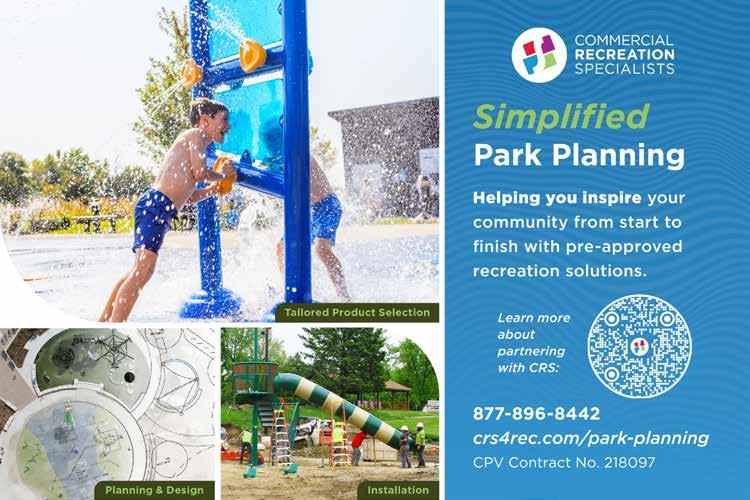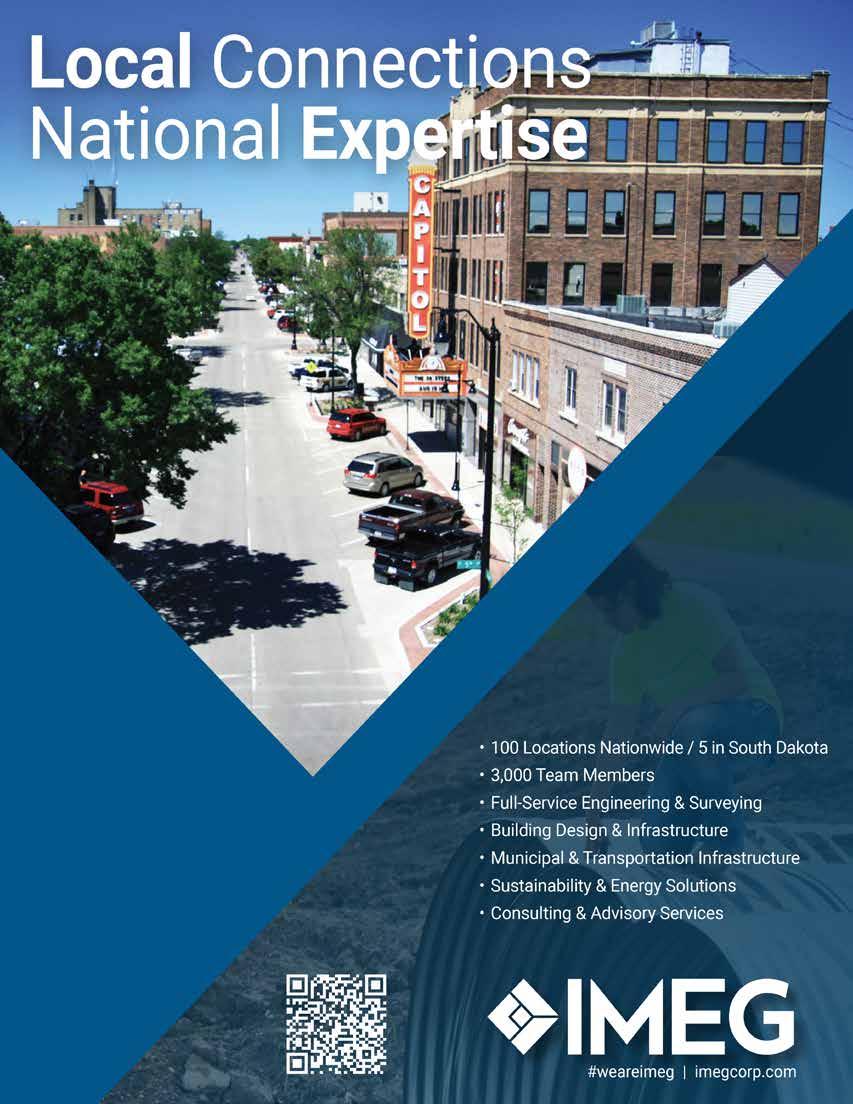


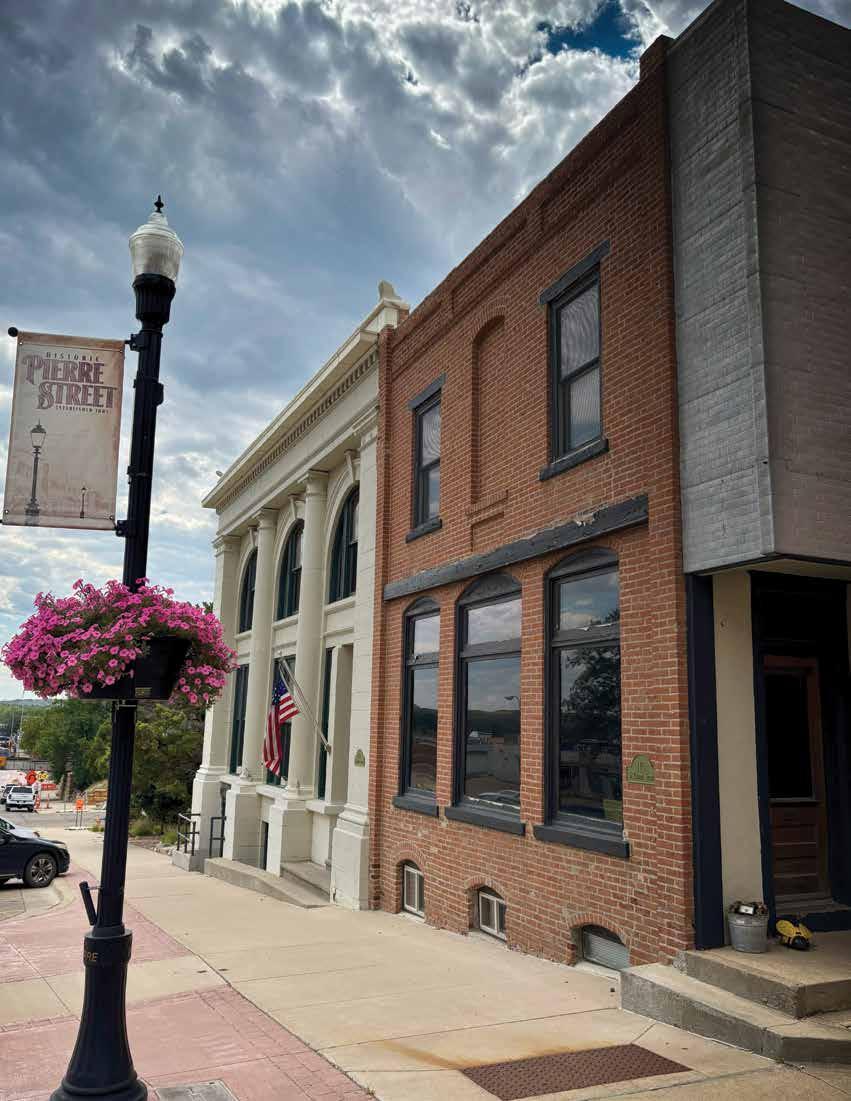































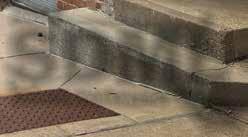



















































offers a robust foundation in serving the needs of non-profits, units of state and local government and
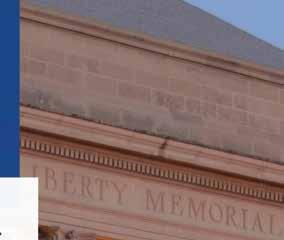
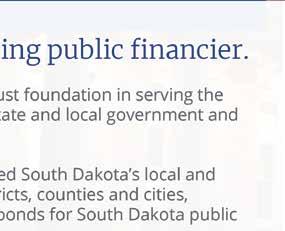
For over 40 years we have served South Dakota’s local and state governments, school districts, counties and cities, underwriting over $6 billion in bonds for South Dakota public entities since 1990.



Tom Grimmond
Sioux Falls, South Dakota
Phone
605.339.9800 | 800.339.1111
tom.grimmond@colliers.com
colliers.com other tax-exempt entities.

We look forward to serving your public finance needs! find us under services









Toby Morris
Pierre, South Dakota
Phone
605.224.5557 | 877.224.5557
tobin.morris@colliers.com





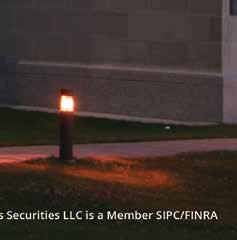
SARA RANKIN | SDML EXECUTIVE DIRECTOR

I’m excited to invite you to SDML's 2025 Annual Conference, September 30 to October 3 at the Ramkota Hotel in Pierre. This event has always been the highlight of our year – a time when city leaders and municipal staff from across South Dakota join together for learning, connection, and celebration.
Each year, I look forward to seeing familiar faces and to welcoming new participants. The agenda for 2025 (►p.26) is packed with practical workshops covering everything from municipal finance and legal compliance to best practices in administration. We know how challenging public service can be, and this conference is designed to give you the tools and support you need to serve your community even more effectively.
What makes this event so special is the energy in the room. With more than 300 officials attending, all passionate about making South Dakota’s cities and towns the very best they can be, the excitement is palpable. Throughout the week, you’ll have the chance to meet peers who understand your challenges, talk directly with vendor partners who provide city solutions, and engage in open dialogue about legislative and regulatory topics that affect us all.
Our conference activities offer an opportunity to celebrate one another’s achievements. Through the Excellence in Municipal Government Award, we specifically honor a municipal employee or elected official who has made a lasting, positive impact on their community through outstanding service, dedication, and leadership. Witnessing the real difference that these dedicated public servants make—by going above and beyond in their commitment to bettering our cities— deeply inspires me. These recognitions serve as a reminder to us all of the purpose and pride in our collective work to advance South Dakota’s municipalities.
What I value most about our annual conference is that it’s not just about formal learning — it’s where our collective voice is shaped and strengthened. During our policy session, your input directly determines the League’s direction and priorities for the coming year. Together, we advocate for local government and for the future of our communities.
I encourage you to make the 2025 Annual Conference part of your calendar. Whether you’re new to your role or a seasoned official, there’s something here for everyone. Let’s continue to learn from one another, celebrate our successes, and advance the mission of strong municipal government in South Dakota.
I can’t wait to see you in Pierre later this month!


PRESIDENT
Carolynn Anderson Finance Officer, Wall
1st VICE PRESIDENT
Leland Treichel
President of the Board, Roscoe
2nd VICE PRESIDENT
Michelle DeNeui Finance Officer, Spearfish TRUSTEES
Paullyn Carey Finance Director, Huron
Lance Lehmann Councilmember, Rapid City
Dawn Murphy Finance Officer, Tea
Richard Thomason, Councilmember, Sioux Falls
Laurie Woodward
City Administrator/Finance Officer, Custer
PAST PRESIDENT
Harry Weller Mayor, Kadoka
Sara Rankin
Dist. 1 | Mike Grosek Mayor, Webster
Dist. 2 | Jameson Berreth
City Administrator, Madison
Dist. 3 | Derick Wenck Mayor, Harrisburg
Dist. 4 | Shauna Meyerink, Finance Officer, Platte
Dist. 5 | Kristi Honeywell, City Administrator, Pierre
Dist. 6 | Rick Boschee Mayor, Bowdle
Dist. 7 | Gary Weismantel Mayor, Herreid
Dist. 8 | Brittany Smith City Administrator, Philip
Dist. 9 | Misty Summers-Walton Finance Officer, Hot Springs
Dist. 10 | Gina Carpenter Human Resources Officer, Belle Fourche
Executive Director
Lori Butler Deputy Director
Jessica Carr Director of Member Engagement
Emilie Miller Director of Marketing and Communications
Lisa Nold Director of Risk Sharing Services
Rob Peterson Director of Municipal Electric Services
Kristi Osterkamp Senior Accountant
Jackie Lopour
Accounting Assistant
Krista Kerns Member Accounts Manager
SD Public Assurance Alliance
Lynn Bren
Executive Director
Kristina Peterson Deputy Director
Becky Brunsing Member Services Representative
Hampton Iverson Member Services Representative
Paytra Nichols Underwriter sdmunicipalleague.org
CAROLYNN ANDERSON | SDML PRESIDENT
Where did the summer go!?

The rain we received this year in Wall was a blessing, and this is the greenest August I can remember in quite some time. August kicked off with the Sturgis Motorcycle Rally, which gives a significant boost to the economy in this part of the state. That energy is quickly followed by the Central States Fair, another welcome boost for our local businesses.
I hope members of the policy committees had productive discussions and that the policy review was especially helpful for any new members joining a committee for the first time. These policies provide the League with valuable direction when the legislative session begins. View each committee's recomendations on ( ► p.7) . Remember, it’s not too late to provide feedback. If you have comments on the SDML Statement of Policy, please submit them at www. sdmunicipalleague.org/About-StatementofPolicy.
September marks the month when some communities will hold the first reading of their budgets. I hope this year has been a strong one for you and that you are well positioned to plan for your 2026 projects. Our sales tax revenue for 2025 is showing an increase over last year, and I’m optimistic that trend will continue. I’ll be starting my own budget process at the end of the month.
I also hope everyone is getting registered for the conference, which begins September 30 with the golf scramble, Board meeting, and vendor set-up. Meetings and sessions will kick off right away on October 1, and the agenda (►p.26) promises to keep us busy during the day and entertained in the evenings. I’m looking forward to reconnecting with everyone and also learning something new.
Until next month!
The South Dakota Municipal League (SDML) policy review committees have released this year’s recommended changes to the association’s official Statement of Policy.
The draft changes include member input contributed during the annual review process of the document, which serves as a reference for the League’s position on various issues affecting local government and guides the League staff and lobbyists during the legislative session.
Each of the four policy committees – Taxation and Revenue; General Government; Public Health, Safety,
and Wellness; and Public Works –compiled and reviewed submissions pertaining to their respective section of the statement during meetings held mid-August in Fort Pierre.
“Every year I am impressed by the dedication and thoroughness that the members show in each of these committees,” said Sara Rankin, SDML Executive Director. “Our members who serve on these policy committees play an integral part in setting the agenda for the upcoming legislative session. We count on them to tell us what challenges they are facing in their communities and what part they see the SDML taking in order to address those issues.”
The next step, said Rankin, is further review and background research by staff. She encourages the membership to review the recommendations and provide feedback.
A list of the suggested changes follows this article. To view the full Statement of Policy with suggested changes embedded within the document, visit www.sdmunicipalleague.org/ about-statementofpolicy.
Members can submit additional comments online. The policy committees will meet again on Oct. 1 during the SDML annual conference in Pierre to consider any new information or suggestions submitted.
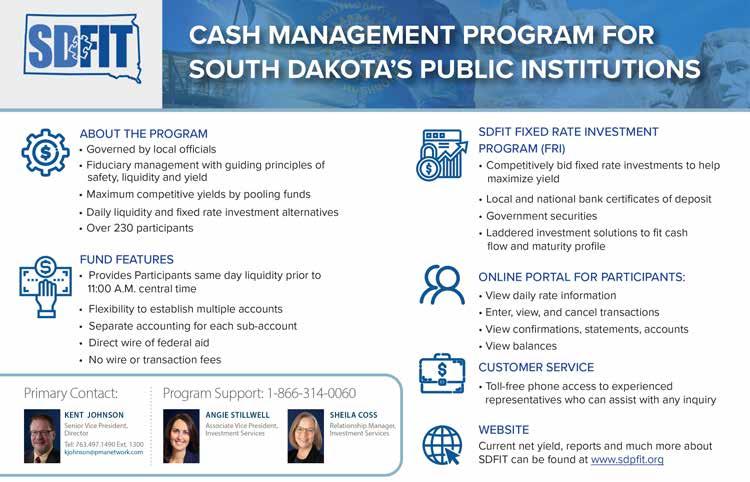
Recommendations from each policy committee are then submitted to the Resolutions Committee, which reviews and prepares them for vote at the annual SDML business meeting on Oct. 3 before being voted into the official statement of policy by the membership.
Policy committees met Aug. 14 and 15, to conduct initial review of the current SDML policy statement and provide updates in draft form for adoption and finalization at the SDML annual conference. Ongoing additions to this list will continue based upon developing issues and staff research.
Suggested draft changes to each policy committee section are provided below. The entire draft policy statement is available for review on the SDML website.
Suggested additions are underlined. Suggested removals are struckthrough.
Reviews and prepares final recommendations to the Statement of Policy for vote at the annual SDML business meeting. Comprised of people from all four policy committees. Appointed by the SDML President.
• Daniel Ainslie, Finance Officer, Rapid City
• David Bixler, City Counsel Budget Analyst, Sioux Falls
• Paullyn Carey, Finance Officer, Huron
• Jon Cole, Mayor, Vermillion
• Mark Cotter, Public Works Director, Sioux Falls
• Tracy Davis, Deputy Finance Officer, Rapid City
• Michelle DeNeui, Finance Officer, Spearfish
• Stephanie Ellwein, City Administrator, Mitchell
• Jason Foote, Police Chief, Yankton
• Mike Glover, Finance Officer, Burke
• Laurie Gronlund, Human Resources Director, Pierre
• Debbie Houseman, City Administrator, Wagner
• Callie Iverson, Councilmember, Fort Pierre
• Terry Johnson, Engineering Projects Supervisor, Mitchell
• Lisa Marso, City Attorney, Brandon
• Kyle Peters, Councilmember, Watertown
• Brittany Smith, City Administrator, Philip
• Misty Summers-Walton, Finance Officer, Hot Springs
• Leland Treichel, President of the Board, Roscoe
New Policy: The SDML supports restoring local control to determine the timing of municipal elections, independent of statewide election schedules.
New Policy: The SDML supports working with the Attorney General and the Department of Health to develop enforceable standards for products containing THC, cannabis and THC synthetics.
New Policy: The SDML supports efforts to help rural healthcare facilities to recruit and retain medical professionals.
CB6. The SDML encourages the local units of government to use the funds available from the State of South Dakota to combat West Nile and other mosquito-borne diseases and encourages the State of South Dakota to increase these funds.
New core belief: The SDML strongly supports the reinstatement of funds from the State of South Dakota for the use of local government efforts in combatting West Nile and other mosquito-borne diseases.
18. The SDML supports state and federal funding for all Regional Water Systems to complete services to South Dakota communities and to Rural Water Systems.
New Policy: The SDML supports the protection of tax increment financing as a means to develop infrastructure.
21. The SDML opposes the practice of the federal government threatening the loss of funding to ensure compliance with federal guidelines. The SDML requests the Department of Agriculture and Natural Resources (DANR) to allow flexibility to water systems to meet water certification requirements and urges the DANR to continue monetary assistance and free training for water certification.
New Policy: The SDML requests the Department of Agriculture and Natural Resources (DANR) to allow flexibility to water and wastewater systems to meet water and wastewater certification requirements and urges DANR to continue monetary assistance and free training for water and wastewater certification.
New Policy: SDML supports legislation to increase the license fee that municipalities may charge on video lottery machines. ■

MICHAEL RUNGE | ARCHIVIST/COLLECTIONS MANAGER, CITY OF DEADWOOD
Deadwood’s utility boxes not only provide electricity to the community, but also provide a canvas for adornment. While perusing Deadwood’s historic neighborhoods and downtown core district, visitors and Deadwood citizens alike can view historic photographs that adorn the many utility boxes.
Deadwood’s first utility wrap was installed by Quik Signs of Spearfish in May of 2018 at the Days of '76 rodeo complex. Over the past eight years, 20 utility wraps have been installed throughout Deadwood.
Image selection for the utility wraps is coordinated through the Deadwood Neighborhood Block Clubs and the City Archives, a branch of the Deadwood Historic Preservation Office. There is no shortage of images, since the City archives has over 10,000 historic and contemporary photographs in its holdings.
Members from the different block clubs (Burnham, Library, Pecks Garden, Presidential, Rodeo Grounds, Stage Run and Upper Main Street) meet with city staff, who then make recommendations based on the utility box location. Once a historic image is selected, the digital file is then forwarded onto Quik Signs to begin the quote and wrap design.
Service techs from Quik Signs conduct an onsite survey of the proposed utility box, measuring and photographing to develop an accurate quote. Back at the shop, the measurements are combined with the historic photograph to create a digital proof. Upon final approval, Quik Sign


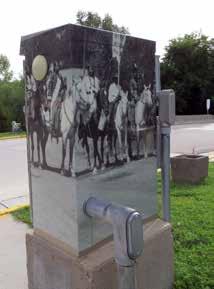
staff begin printing the wrap. The ink used for the wrap has to off-gas for at least 24 hours before the laminate layer is applied. Laminated print vinyl graphics provide a layer of protection from UV rays and the outdoor elements.
On average, the installation time for a utility box is 2-4 hours depending upon size and intricacies of the box. Temperature and weather conditions provide the greatest obstacle for proper installation of the utility boxes. The absolute minimum installation temperature is 45 degrees, but it is preferable to have warmer temperatures in the range of 55-75 degrees. Windy or rainy conditions also provide installation delays, so date flexibility is paramount to get the best results. Once installed, the wraps’ average life span is five to seven years.
The next time you are sitting at an intersection or crosswalk, take a moment to locate and view the numerous utility box wraps in Deadwood. ■
I had the recent pleasure of taking a trip to western South Dakota that showed very lush, green landscapes. It is crazy that summer has come and gone, school is in session, fall sports are in full swing and our state will soon be full of fall colors. I hope you can get out and enjoy our beautiful state before winter sets in. I am truly excited to travel across the state, meeting with many of you while the weather is still favorable and the colors are at their peak.
I wanted to fi ll you in on a change with SD FIT that is bound to make us stronger. SD FIT’s financial and advisory services provider, PMA Financial Network, LLC, is now part of PTMA Financial Solutions.
While the PTMA Financial Solutions brand is new, our company has been here for more than 40 years. PTMA Financial Solutions, affiliated with the PMA Companies and Public Trust Advisors, LLC, emerged in the marketplace as one in 2024 after realizing that our two firms were aligned in our mission to address the financial pain points of local governments and provide solutions that help optimize their finances.
It’s truly a one plus one equals three opportunity as we became better together, collectively expanding our
comprehensive platform of fi nancial products and services. Our combined company honors our rich histories, reflecting the values and traditions that have shaped our journey together.
Our name may have changed, but your service team is still the same dedicated personnel that stive to do their best for your community. Kent Johnson, Angie Stillwell, Natalie Bennett and I – Sheila Coss – are all still here to serve you.
We design and deliver financial solutions that help communities across the country manage their money more effectively.
PTMA partners with and connects thousands of local governments and financial institutions by designing and delivering customized financial solutions that seek to strengthen communities from coast to coast.
We strive to be the financial services firm at the heart of civic life nationwide, providing the most comprehensive platform of solutions to help our clients and their communities thrive.
From shrinking budgets to idle funds, PTMA helps you do more with less.
PTMA Financial Solutions collaborates


with your local government to tailor strategies that address your specifi c needs. With a track record of assisting local government clients facing similar challenges, we are equipped to help you navigate:
• Shrinking budgets and unpredictable revenue streams
• Challenges in balancing yield and liquidity targets
• Idle or underutilized public funds
• Understaffed finance departments
• Complex compliance and reporting requirements
• And much, much more!
PTMA Financial Solutions and its affiliates currently have $154B+ Assets Under Management, 13K+ Local Governments Served, 29+ States served by the PTMA platform, 999+ Financial Institution Partners and $4B+ Investment Income Generated for Communities in 2024.
Our organization transitioned to the @ ptma.com email domain at the end of July. While we will still receive emails addressed to @pmanetwork.com. Oour sent email will originate from @ptma. com. To ensure you continue receiving important communications from us, we kindly ask that you add @ptma.com to your safe sender list (or whitelist) it in your email system. Please don’t hesitate to reach out if you have any questions or need additional information. ■

Applications for the Community Forestry Grant through the SD Department of Agriculture and Natural Resources (DANR) will be taken through the end of September.
The grants fund community forestry projects that solve a specific community forestry problem or demonstrate the importance of trees in our communities.
Grants have a maximum limit of $5,000. A match is required and may be met through volunteer labor, donated and/or purchased supplies, or actual cash expenditures.
Eligible projects include funds spent on professional services, tree inventory/assessment, existing tree care and maintenance, education/training, new tree planting, urban food forest, and other related activities.
Grant applications are accepted throughout the year, but are only considered when the grant round is open. The grant round begins September 1 each year. Applications for that round are accepted until the end of the month.
Application forms are available at https://danr.sd.gov. For assistance with applications and grant questions, DANR recommends contacting your local service forester. Contact information can be found on the grant webpage. ■


On July 3, the House passed the Senate’s version of the One, Big, Beautiful Bill Act (H.R. 1) in a vote of 218-214. This followed the Senate’s passage on July 1 by a vote of 51-50, with Vice President Vance casting the deciding vote. Ultimately, Sens. Tillis (R-NC), Paul (R-KY) and Collins (R-ME) and Reps. Fitzpatrick (R-PA) and Massie (R-KY) voted against the bill, along with every Democrat and Independent. President Trump signed the bill into law on July 4.
The National League of Cities recently released their key takeaways, which include:
• Key outreach from local leaders across the country produced several local government wins, including the preservation of tax-exemption on municipal bonds, a temporary raise to the SALT deduction and improved incentives for private investment in underserved communities.
• The bill rescinds a substantial amount of funding from the U.S. Department of Transportation Neighborhood Access and Equity grants, as well as unobligated funding from several emissions reduction grants under the U.S.

Reprinted from National League of Cities, www.nlc.org.
Environmental Protection Agency.
• The bill maintains the direct pay mechanism created through the Inflation Reduction Act, it accelerates the phase out of tax credits for solar and wind projects and adds new requirements around supply chain components that will likely limit the ability of local governments to take advantage of the direct pay program.
• Significant cuts were made to social safety net programs, including $186 billion through 2034 for the Supplemental Nutrition Assistance Program (SNAP) and $1 trillion from Medicaid.
• The bill significantly expands federal immigration enforcement capacity while providing targeted funding to support local public safety and security efforts related to the 2026 FIFA World Cup and the 2028 Olympics, including $500 million to enhance local capabilities for detecting threats from unmanned aerial systems.
To read NLC’s full opinion on how the bill could impact local government, visit the NLC CitiesSpeak blog at https://www. nlc.org/citiesspeak. ■



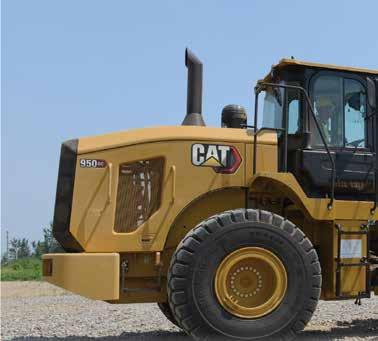

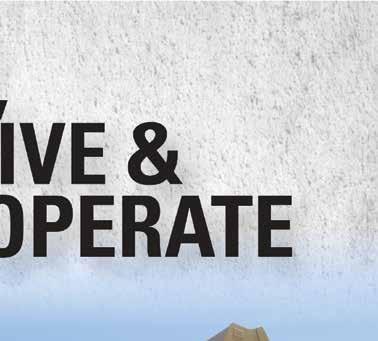


PIERRE, S.D. – Applications for the next round of the Deadwood Fund grant program through the South Dakota State Historical Society are now available. Applications should be postmarked no later than Oct. 1 for work beginning no sooner than Jan. 1.
South Dakota Historic Preservation officials say the grant program is designed to encourage large-scale restoration or rehabilitation of historic properties by individuals, organizations, or public agencies.
Grants will be awarded in amounts ranging from $1,000 to $25,000. The grant amount must be matched on a
dollar-for-dollar basis from nonfederal and non-state sources. Nonprofit organizations will be allowed to use in-kind services for one-half of their match.
Funding for the program is from Deadwood gaming revenue earmarked by state law for historic preservation projects throughout the state and distributed by the State Historical Society.
Applications are due Oct. 1 and Feb. 1 each year. Grant forms are available online at https://history.sd.gov/ preservation/fundingopportunities. aspx. ■
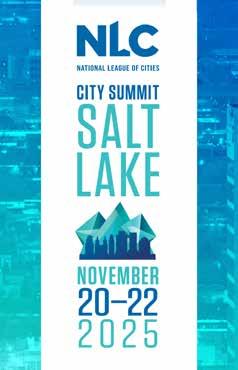
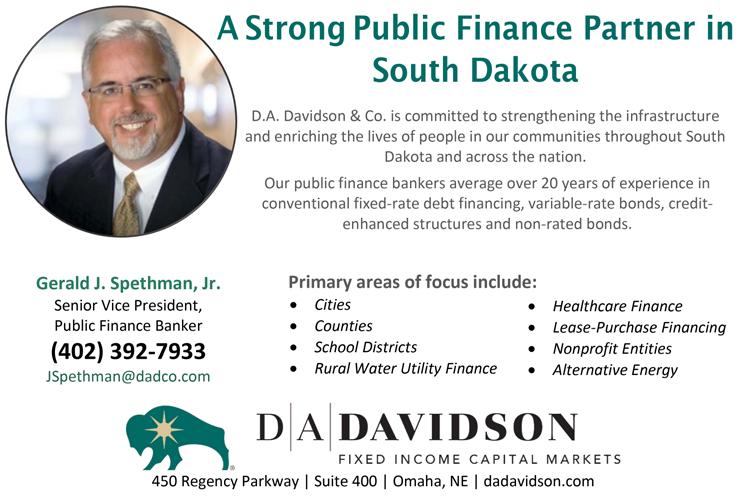
Service animals are defined by the Americans with Disabilities Act of 1990 regulations as “any dog that is individually trained to do work or perform tasks for the benefit of an individual with a disability.”
These very special dogs (and miniature horses in limited circumstances) are more than mere pets or companions. For those with service animals, they are a lifeline that facilitates the ability to fully enjoy the world. Some service animals may provide sight or hearing, some have the ability to alert their handler of impending medical or psychological crises, and others may help to physically navigate physical barriers— and those are just some examples. The most vital thing to keep in mind is that a service animal is not the same creature as your family fido, but is an extension of their handler, the person with a disability.
While the rights and responsibilities of businesses, places of public accommodation, as well as service animal handlers, are relatively uncomplicated when it comes to service animals, there is often great confusion and anxiety surrounding this topic.
Does a business have to let an animal enter? What if the business serves food? What can someone ask to determine if a dog is a service animal or a pet? All of these questions are very common, and ADA guidance addresses them.
The first question many organizations have is, “What can I ask someone who has a dog to see if it is a service animal?” Very simply, staff can ask two questions: 1. Is the dog a service animal required because of a disability? and 2. What work or task has the dog been trained to perform? Aaaannnd... that’s it! The dog does not need any kind of registration or papers (there is no official service animal registry), it does not need to wear a vest, and it does not have to prove to anyone it can, in fact, do the task described in response to the second question above. If the handler has an animal to assist them with a disability and the dog has been trained
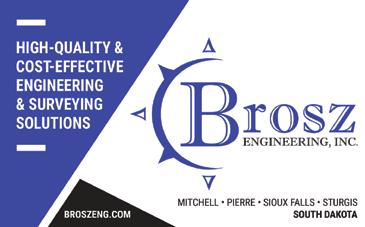

to provide a service, then it is a service animal that receives protection under the ADA.
Now that we understand that a person with a service animal has the right to have that animal in the community and within places of public accommodation, we should also be aware of the responsibilities that come with having a service animal.
First, the animal must remain under the control of the handler at all times. This means that the animal should not get distracted by other animals, become aggressive around people, leap onto countertops, or otherwise engage in poor behavior—but it doesn’t mean that the service animal has to be on a leash at all times.
Second, the animal must be housebroken—NO MESSES! In fact, the handler is responsible for any damage caused by a service animal.
Third, while services animals are generally not subject to no-pet policies (with exceptions for places like hospital operating rooms and restaurant kitchens), handlers are still responsible for the care of their service animals, including ensuring that their dog has food and water, and is up to date on things like required vaccinations.
So, this is the basic need-to-know outline on protections for service animals and how valuable they are for people who utilize their help. Other considerations, such as fundamental alterations and laws surrounding service animals-in-training, should be considered by those in charge of places of public accommodation.
Anyone with questions about rights and obligations related to service animals or any other disability rights issues is encouraged to contact Disability Rights South Dakota (DRSD) at drsd@drsdlaw.org or (605) 224-8294 to discuss the nuances of Federal, State, and Local legal protections. DRSD is committed to promoting inclusion and the protection of rights for South Dakotans with disabilities. ■
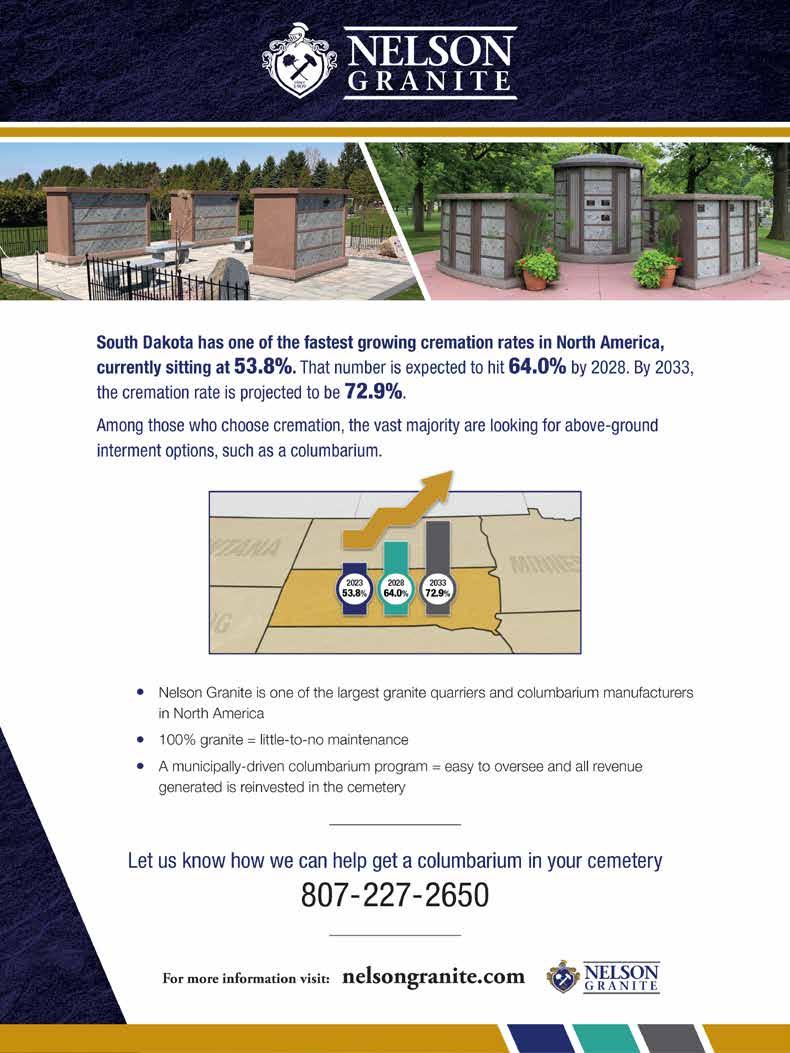
The South Dakota Municipal League (SDML) has launched an online version of the widely used SDML Handbook for Municipal Officials, ushering in a new era of accessibility, efficiency, and convenience for local government leaders and staff across the state.
“The move to an online SDML Handbook not only increases accessibility and efficiency but also empowers municipal officials with the tools they need to stay informed and effective,” said SDML Executive Director Sara Rankin. “Whether searching for regulations, confirming recent updates, or printing the most recent updates for their handbook, the new digital platform is designed with user needs at its core.”
The online version will also be free, included as part of SDML membership. All employees and elected officials of a member municipality can access the handbook at any time.
One of the standout features of the online SDML Handbook is its search platform. Officials can now find specific policies, guidelines, or legal references in seconds simply by typing keywords or phrases into the search bar. This streamlined search functionality dramatically reduces the time spent flipping through pages, ensuring that users get the information they need when they need it.
In the dynamic world of municipal governance, timely information is crucial. The online handbook is now equipped with real-time updating capabilities. As legal requirements, best practices, or municipal standards change, updates are instantly reflected in the online platform. Users can trust that they are always referencing the most current information available, eliminating confusion from outdated printed materials.

While the digital transformation offers many benefits, SDML recognizes the value of traditional resources. For those who prefer having a physical reference on hand, the online platform includes convenient print options. Users can select sections or the entire handbook to print, ensuring they can maintain hard copies for meetings, trainings, or personal reference as needed.
Importantly, each year’s updates to the SDML Handbook will continue to be available in their original format. This allows users who wish to keep their printed handbook current to easily print the latest updates in the same format they’re accustomed to, ensuring continuity for those who rely on hard copies.
SDML members can access the handbook online at https:// sdmunicipalleague.org/handbook. Members must be logged into their SDML member account to view the file. ■
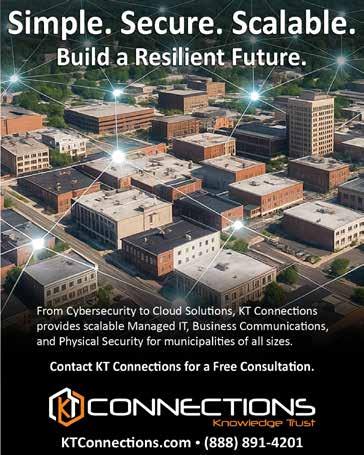
In their 2024-2025 term, the Supreme Court of the United States (SCOTUS/ Court) issued decisions that directly impact local governments on issues including public safety, employment law and the environment. Through our legal advocacy process and in partnership with our founding partner organizations with the Local Government Legal Center (LGLC), the National Association of Counties (NACo) and the International Municipal Lawyers Association (IMLA), the National League of Cities (NLC) participated in amicus briefs presenting sound and persuasive legal arguments to the court on principles and issues important to good municipal government.
This article breaks down the most significant SCOTUS rulings and their implications for local governments from this past term. Understanding these decisions is essential for local officials to navigate the changing legal landscape and effectively serve their communities.
This case concerns so-called “ghost guns” or firearm part kits that are sold online to anyone without background checks or serial numbers and can be easily assembled, often in a matter of minutes. The Bureau of Alcohol, Tobacco, Firearms and Explosives (ATF) issued a regulation concluding ghost guns should be considered firearms under the statutory definitions of the Gun Control Act of 1968 (GCA) and therefore be subject to the GCA’s requirements. The question in the case was whether these “ghost guns” should be considered firearms for the purposes of the GCA, which imposes licensing, background check, record keeping, and serialization requirements on the manufacturers and dealers of firearms.
The Court held that ATF’s regulation of so-called “ghost guns” did not
Reprinted from National League of Cities, www.nlc.org.
The Supreme Court issued decisions in several monumental cases this Term, including cases related to:
1. Public safety. These include regulations pertaining to “ghost guns” and law enforcement’s use of force and the “moment of threat” doctrine.
2. The environment. These include the Clean Water Act and NPDES permit requirements as well as requirements under NEPA.
3. Employment law. These include majority group discrimination, FLSA claims and claims relating to post-employment retiree benefits.
4. Nationwide or universal injunctions, which have direct implications for current litigation regarding grant funding and grant conditions.
violate the Administrative Procedure Act (APA) as the firearm part kits could be considered firearms under the statutory definitions of the GCA. This decision means that the manufacturers of “ghost guns” must comply with the same requirements under the GCA to conduct background checks, keep records of sale, and serialize the firearms that other firearm manufacturers must comply with.
This is a win for public safety in local communities as “ghost guns” create significant public safety concerns as they allow minors and felons who are otherwise prohibited from owning guns under the 1968 Gun Control Act to obtain them. They also create significant roadblocks for law enforcement in investigating violent crimes as they cannot typically be traced as they lack serial numbers.
NLC filed a brief in this case with our founding partners of the LGLC.
The issue in this case was whether Title I of the ADA reaches alleged discrimination against retirees for
post-employment retirement benefits when the individual cannot perform the essential functions of the job with or without a reasonable accommodation. In this case, the former employer, who was disabled and could no longer continue in her position, sued her employer based on a change the employer made to its post-retirement health benefits several years earlier (when the employee was qualified and working in the position).
The Court held that to prevail under Title I of the ADA, a plaintiff must be a “qualified individual,” meaning she must “plead and prove that she held or desired a job and could perform its essential functions with or without reasonable accommodation, at the time of an employer’s alleged act of disability-based discrimination.” In this case, the employee could not satisfy this standard when she sued and therefore could not bring a claim under the ADA for the change to the post-retirement benefits policy.
This is a win for local governments as a broad ruling in the petitioner’s favor presented significant implications for
the public fisc and post-employment benefit liabilities.
NLC filed a brief in this case with our founding partners of the LGLC as well as associate members the Government Finance Officers Association (GFOA) and the International City/County Management Association (ICMA).
This issue in this case concerned majority group discrimination and what the proper evidentiary standard in these employment discrimination cases should be. Because the plaintiff was heterosexual and part of the majority group, the Sixth Circuit required that she also show “background circumstances to support the suspicion that the defendant is that unusual employer who discriminates against the majority.”
The Court unanimously reversed a Sixth Circuit opinion, which made it harder
for employees in majority groups who are passed over for promotions or otherwise subjected to adverse employment actions to bring Title VII lawsuits.
A concern for local governments in this case was to prevent a broader ruling that could have undermined the evidentiary burden in employment discrimination cases and how those cases are litigated by overturning a 40-year precedent. The majority did not overturn that precedent, though two concurrences called it into question.
NLC filed a brief in this case with our founding partners of the LGLC.
The issue in this case concerns exemptions to the Fair Labor Standards Act’s (FLSA) overtime and minimum wage requirements and what standard of proof an employer must show to demonstrate an exemption applies.
The lower court applied a “clear and convincing evidence” standard, which would make it very difficult for employers to demonstrate that an employee satisfied the exemption. Because violations of the FLSA carry double and sometimes treble damages, this is an important case for local governments.
The Court held that to prove that an exemption to the FLSA’s minimum wage and overtime requirements apply, an employer need only do so by a preponderance of the evidence rather than a more demanding clear and convincing evidence standard.
This is a win for local governments as a contrary rule would have resulted in more liability under the FLSA which comes with double and treble damages and attorney’s fees.
NLC filed a brief in this case with our founding partners of the LGLC.

Here, the City and County of San Francisco challenged the Environmental Protection Agency’s (EPA) issuance of a discharge permit containing ambiguous provisions regarding water quality standards. This case seeks clarity in National Pollutant Discharge Elimination System (NPDES) permits and the generic water quality terms that expose permit holders nationwide to enforcement actions while failing to tell them how much they need to limit or treat their discharges to comply with The Clean Water Act (CWA).
Under the CWA, when an entity, including local governments, seeks to discharge pollutants into waters of the United States, that entity must obtain a permit from the EPA to do so. These permits often contain “effluent limitations” — i.e., limitations that provide specific quantities of pollutants that may be discharged. But as was the case here, they also sometimes contain provisions that make the permittee responsible for the overall water quality where the permittee discharges pollutants. The Court refers to these types of requirements as “end-result” requirements. This question here deals with the legality of these “end-result” requirements that do not provide any specific limitations on permittees but instead focus on the resulting quality of the water.
The Court held that the EPA is not authorized to impose “end result” provisions in NPDES permits and instead it is the EPA’s responsibility to “determin[e] what steps a permittee must take to ensure that water quality standards are met.”
This is a win for local governments as it helps ensure local governments understand their obligations under the CWA.
NLC filed a brief in this case with our founding partners of the LGLC and the League of California Cities.
The question in this case was whether a party that obtains preliminary relief but never obtains judicially sanctioned relief because of the defendant’s voluntary change in conduct may be the “prevailing party” who qualifies for an award of attorney’s fees under §1988(b). In this case, the Virginia legislature repealed a law being challenged after the parties obtained preliminary relief but before they obtained final relief, mooting the case. Thereafter, the plaintiffs sought attorney’s fees, claiming to be the prevailing party. Interpreting “prevailing party” to allow for attorney’s fees for preliminary injunctions would harm local governments by discouraging local governments from voluntarily changing

suspect policies, incentivizing expensive litigation, and draining public resources.
The Court held that a party does not “prevail” under 42 U.S.C. § 1988 for the purposes of attorney’s fees based on obtaining a preliminary injunction, even if the defendant’s conduct later moots the case.
This case was a win for local governments as attorney’s fees awards can be significant, and a contrary result would undermine the public fisc.
NLC filed a brief in this case with our founding partners of the LGLC as well as associate member GFOA.
This case is brought by a group of consumers, a carrier, and a nonprofit challenging the Universal Service Fund (USF) that collects funds from telecom providers and redistributes them to localities lacking telecom and broadband access, utilizing an intermediary administrative entity which it has appointed to facilitate the program. The challengers argue that such a process and structure results in an unconstitutional delegation of Congress’s taxing authority.
The Court held that the universal-service contribution scheme does not violate the nondelegation doctrine. The Court held “that no impermissible transfer of authority has occurred.
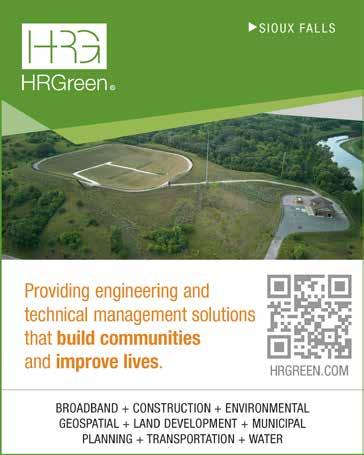
Under our nondelegation precedents, Congress sufficiently guided and constrained the discretion that it lodged with the FCC to implement the universal-service contribution scheme. And the FCC, in its turn, has retained all decision-making authority within that sphere, relying on the [USAC] only for non-binding advice.”
This case was a win for local governments as it preserved the USF, which is vital to the public health, safety, and educational welfare of local communities. The decision preserves the E-rate program, Rural Health Care program, Lifeline program, and High-Cost Program.
NLC filed a brief in this case with our founding partners of the LGLC.
This case concerns the rights of litigants, including local governments, to challenge certain agencies’ final orders (including FCC final orders) interpreting a statute in district court after the time period required by the Hobbs Act to enjoin such an order has expired. The Hobbs Act provides circuit courts with “exclusive jurisdiction” to enjoin, set aside, suspend (in whole or in part) or to determine the validity of” certain agency orders. The Act gives litigants 60 days to seek to set aside a rule after it is finalized. The issue in this case was whether the Hobbs Act required the district court in this case to accept the FCC’s legal interpretation of a particular statute when that litigant did not meet the Hobbs Act requirements.
The Court corrected the view that entities (whether governmental or private parties) typically have only 60 days to launch a pre-enforcement challenge to agency orders, and only at a federal circuit court. After Mclaughlin, that limited window only applies where Congress has expressly precluded judicial review in a subsequent enforcement proceeding.
This case was a win for local governments that are sometimes unable to challenge FCC and other agency rules within the quick time frames — often 60 days — and then are later sued with an enforcement challenge under that rule. This decision allows localities to at least challenge the agency rule under those circumstances.
NLC filed a brief in this case with our founding partners of the LGLC.
As the Court finished up their term, it issued the decision in Trump v. Casa (PDF), the birthright citizenship case. The merits of the birthright citizenship Executive Order were not at issue in this case. Instead, it centered on whether courts can issue universal or nationwide injunctions. The Court held that universal injunctions likely exceed the authority of district courts though there are some caveats to the ruling. Learn more about this case, the Court’s decision and its impact on local governments in the CitiesSpeak blog article “Supreme Court Rules on Nationwide Injunctions,” found at https:// www.nlc.org/article/2025/07/16. ■
LYNN BREN | SDPAA EXECUTIVE DIRECTOR
Across South Dakota, local governments are facing a growing list of challenges— from unpredictable weather patterns and aging infrastructure to evolving coverage and risk management needs and liability concerns. In response, municipalities are embracing new strategies to build resilience and safeguard their communities for the future.
At the heart of this effort is a commitment to initiative-taking risk management. Whether it’s through improved property valuations, collaborative risk pooling, or enhanced emergency preparedness, South Dakota’s local governments are finding innovative ways to protect public assets and ensure continuity of services.
Recent years have underscored the importance of readiness. Severe storms, flooding, and other natural events have tested the limits of municipal infrastructure and emergency response systems. At the same time, rising costs and shifting insurance landscapes have made it more difficult for local
governments to secure adequate coverage.
To address these challenges, the SDPAA provides tailored risk management services and coverage solutions. The SDPAA has engaged with local and national service providers to ensure the most qualified and knowledgeable partners for the SDPAA Members. These partnerships help communities assess vulnerabilities, implement mitigation strategies, and respond more effectively when crises arise. Further, these partners assist in ensuring that the coverages offered by the SDPAA are appropriate for our Members. As the risks being faced by local governments continue to evolve, so too do the loss control, risk management, and valuation programs that the SDPAA has to offer. The SDPAA is consistently looking for additional and alternative resources that Members of the SDPAA may use to make their communities a safer place to live or visit!
As Members look back on their responses to the various risks that




As part of our continued commitment to supporting South Dakota’s municipalities, I’m excited to introduce our newest team member: Hampton Iverson, who joins us as our newest Member Services Representative.
We are excited about bringing Hampton on board. Hampton will not only provide a fresh perspective on our Member Services programs, but he will be working closely with our Member communities to enhance outreach, streamline valuation processes, and support local resilience efforts.
Hampton comes to the SDPAA with a background in cyber security and communications via his experience in the US Air Force and attendance at the University of ColoradoBoulder. Hampton will be taking over the territory currently serviced by Jerry Krambeck, as Jerry prepares to fully retire and focus on his family and friends. Please be sure to stop by our booths at all the upcoming conventions and conferences and introduce yourself.
they’ve faced, they have an opportunity to consider whether their preparedness plans responded the way they were intended. This past summer has offered many communities a firsthand opportunity to analyze how their emergency response plans held up against an actual emergency situation. Other communities may be able to use the experiences of their neighboring communities to test their plans to these circumstances. They say hindsight is 20/20. Now is the time to use that hindsight to analyze and adjust your preparedness plans.
Members are also encouraged to take some time now to analyze and adjust contract and agreement language, ensuring that the verbiage contained in each meets the local needs of the community, as well as offering appropriate protections against the risks which may arise out of the circumstances creating the need for these agreements and contracts.
Members are also encouraged to stay up to date on the offerings through the Cyber Security initiative. Taking advantage of currently available resources is a key way to ensure that your community is preparing themselves for the ongoing and emerging cyber risks facing South Dakota public entities.
As we move forward, our focus remains on empowering municipalities with the tools, knowledge, and support they need to thrive. Whether it’s through training sessions, valuation services, or one-on-one consultations, we’re here to help local governments build stronger, safer communities.
We invite you to contact us, share your concerns, and explore how we can work together to prepare for tomorrow’s risks—today. All of our contact information can be found on our website at www.sdpaaonline.org! ■
Let us know! Submit a short piece (250 words) about what's going on in your city, such as accomplishments, employee milestones, or facility openings. Include an image if possible.
Got a bigger story to tell? It might be a good fit for a feature story! Submit your idea today.
Submit news and story ideas to: emilie@sdmunicipalleague.org
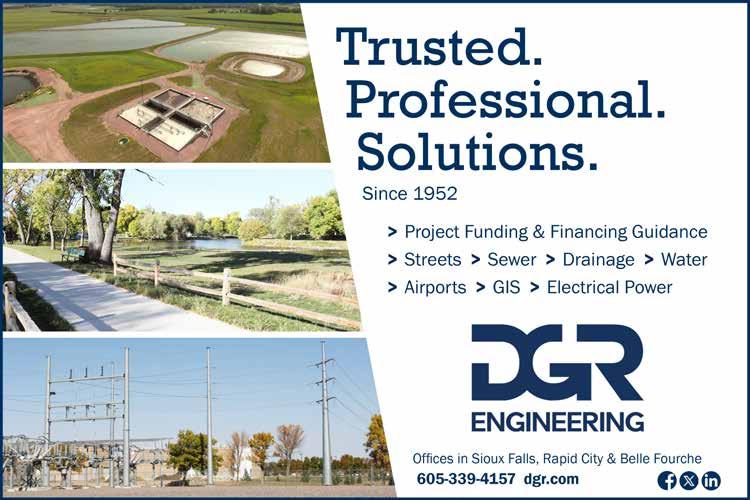




















On behalf of the City of Pierre, it is my pleasure to welcome you to our capital city for this year’s South Dakota Municipal League Annual Conference. We are honored to host such a dedicated group of public servants, municipal leaders, and community partners from across our great state.









Since its founding in 1934, the League has been a vital resource for South Dakota’s cities and towns, fostering collaboration, sharing knowledge, and strengthening the voice of municipal government. This conference continues that tradition, offering us the chance to learn from one another, discuss solutions to common challenges, and celebrate the many successes in our communities.




Sept. 30-Oct. 3 | Pierre, SD to




Thank you for your commitment to serving the people of South Dakota. Your work makes our cities stronger, our communities more vibrant, and our state a better place to call home. I wish you a productive, engaging, and enjoyable conference.

While you’re here, I encourage you to take advantage of all Pierre has to offer. Enjoy outdoor adventures along the Missouri River, explore our rich history at the South Dakota State Capitol, and walk through the Trail of Governors. Be sure to check with the Pierre Area Chamber of Commerce for local events happening during your stay.

Welcome to Pierre, and enjoy your stay!
Mayor Steve Harding, City of Pierre







































Bring a good idea from home to share and a supply of business cards. If your city has promotional stickers or pins, bring a supply to share to make your hometown visible and help you make connections.
Review the conference agenda and map out the sessions you will attend. If others from your community are attending, decide together who will go to what. Your municipality will gain the most when attendees divide and conquer. All sessions are open to all registered attendees.
If you are a first-time attendee, plan on going to the “Orientation for New Attendees” session on Wednesday morning so you can learn more about the conference and the League, as well as meet other first-timers.
All sessions listed on the conference agenda are open to all conference attendees – you do not have to be a member of the affiliate group to attend their meeting.
Good session notes – complete with notations of who you want to share the information with after the conference and ideas the information generates – will be invaluable when you prepare a summary. Plan to share it with other municipal officials, citizens, and appropriate staff.
Each evening as you wind down from the day of sensory overload, review
your session notes and jot down the top three discoveries. What were the most important, pertinent, useful, or amazing discoveries that day? How can they apply to your municipality? Write them down. And – on a specific future day in your calendar – note an idea you want to pursue.
Make it a habit to introduce yourself to others around you at sessions and events. Have plenty of business cards to share. You can start conversations by asking questions. What part of the conference have they enjoyed most so far? How long have they held their position? What are the biggest issues their community faces? You may have common concerns to explore or discover solutions that other communities have developed for similar issues.
Exhibitors are experts in their field and have a lot of experience working with municipalities. They can be great sources of information and solutions for municipal concerns. Exhibits are open Wednesday 8 a.m.-4 p.m. and Thursday 8-11 a.m. Be sure to complete your Visit the Exhibits card to be eligible for prize drawings.
If you serve on a policy committee, those meet on Wednesday afternoon. If you are not on a policy committee, this is an excellent opportunity to sit in on one that is of interest to you. Policy committees shape the Statement of Policy that guides the League’s legislative agenda for the coming session.

SDML Member
• Full Conference: $125
• Two-day: $100
• One-day: $65
• Guest options available Non-Member
• Full Conference: $225
• One-day: $100
Fees increase Sept. 8. www.sdmunicipalleague.org
Make sure your municipality has a voting delegate at the business meeting on Friday morning so your voice is counted in the election of League board members and the adoption of the Statement of Policy.
Relax and enjoy the sights and delights of the host town. Take time to renew yourself every evening to be refreshed the next day. Return home with your notes, contacts, resources, ideas, and dreams – and the commitment to make a difference with what you have learned!
Know what it costs your municipality to send you to the conference and be prepared to talk about all the benefits your local government receives as a result. Municipal government is a lot like parenthood. It is impossible to know all about it until you are in the thick of it. There is a lot of on-the-job learning – and the SDML Conference is the single best forum for learning about municipal governance in South Dakota. ■









12 p.m. SDML Board of Directors Meeting, off-site
1 p.m. Golf Scramble, Hillsview Golf Course
Sponsored by the City of Pierre and the SD Municipal League
5 p.m. Dinner On Your Own
8 a.m. Registration Opens Floor signs sponsored by Nelson Granite. Badge tower sponsored by Banner Associates. Lanyards sponsored by Stockwell Engineers, Inc.
8 a.m.-4 p.m. Exhibits Open
8:30-9:45 a.m. Opening Session
9:45 a.m. Break. Sponsored by Heartland Energy
10 a.m.-12 p.m. Affiliate Meetings:
Airport Management (SDAMA), Human Resource (SDGHRA), Police Chiefs’ (SDPCA)
10 a.m. Orientation for New Attendees
10 a.m. Elected Officials Workshop: How to Conduct a Council Meeting
10-10:45 a.m. Concurrent Sessions: (repeat at 1:15 p.m.)
• Economic Development
• Property Tax, TIFs, and Discretionary Formula
• Liquor and Lottery
11-11:45 a.m. Concurrent Sessions: (repeat at 2:15 p.m.)
• Safety Tool Kit
• Legal Issues Facing Municipalities
• Brownfields: From Blight to Bright
12 p.m. Safety Luncheon Sponsored by the SDML Workers' Compensation Fund and the South Dakota Public Assurance Alliance
1-3 p.m. Pooling Meetings - Featuring Pooling Wheel of Fortune
1-4 p.m. Affiliate Meetings: Finance Officers (SDGFOA), Electric (SDMEA), Building Officials (SDBOA) - Sponsored by LP Building Solutions
1:15-2 p.m. Concurrent Sessions: Sessions repeated from 10 a.m.
2:15-3 p.m. Concurrent Sessions: Sessions repeated from 11 a.m.
Agenda subject to change. Sessions take place at the Pierre Ramkota Conference Center unless indicated. Visit www.sdmunicipalleague.org for the most current information.
1:15-3:15 p.m. Guided Tours: Capitol Building, Capitol Grounds, Water Treatment Plant
3 p.m. Break
4 p.m. SDML Policy Committee Meetings
4 p.m. Auditing Committee Meeting
4 p.m. Nominating Committee Meeting
5 p.m. Exhibit Area Social
6-8 p.m. A Night of Spirits, St. Charles Building/ Downtown Pierre
7 a.m. Wake-up Wellness. Sponsored by the Health Pool of South Dakota, the South Dakota Public Assurance Alliance, and the SDML Workers' Compensation Fund
7 a.m. Breakfast. Sponsored by D. A. Davidson
7:30 a.m. The Breakfast of Presidents
8-11 a.m. Exhibits Open
8 a.m. Resolutions Committee Meeting
8 a.m.-12 p.m. Affiliate Meetings: City Managers (SDCMA), Street Maintenance (SDMSMA), Code Enforcement (SoDACE) - Sponsored by LP Building Solutions
9 a.m.-12 p.m. Affiliate Meeting: Attorneys (SDMAA)
12 p.m. Excellence Luncheon
Sponsored by the First National Bank in Sioux Falls and BankWest, Inc.
1:30 p.m. SD Fire Chiefs Meeting
1:30 p.m. SD APWA/Public Works Meeting
1:30-3 pm. Keynote | A Different Kind of Career: Undercover in the CIA
3 p.m. Break
3:30-4:30 p.m. Back to Basics: Reconnecting with the Core of Good Governance
5:30 p.m. President Carolynn’s Reception Sponsored by HDR
6:30 p.m. Midnight at the Masquerade Murder Mystery. Sponsored by Colliers Securities
FRI, OCT. 3
7:30 a.m. Breakfast Sponsored by JEO Consulting Group.
8:30-10 a.m. Legislative Q&A
10 a.m. SDML Business Meeting and Election Conference End




Sept. 30-Oct. 3 | Pierre, SD www.sdmunicipalleague.org/conf2025







-Legal Issues Facing Cities
Keynote Speaker | Former spy Jim Olson will share several (now declassified) stories and lessons learned from his James Bond-inspired life, which has taken him from Iowa farmboy to undercover spy family to Chief of Counterintelligence for the CIA.




















-Reconnecting with the Core of Good Governance
-Propery Tax, TIFs, and Discretionary Formula
-Public Space Development
-Brownfields: From Blight to Bright











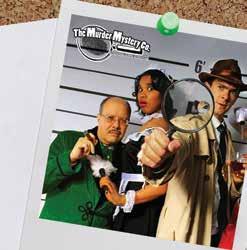




Wed. Night | Join us at the St. Charles, one of Pierre’s oldest (and some say spookiest) buildings. We’ll enjoy drinks, food, local music, and trivia to test your knowledge on all things haunted, morbid, and mysterious throughout South Dakota.
Thurs. Night | Get ready for an evening of mystery, intrigue, and murder at this masquerade ball murder mystery party. It’s up to you to determine which partygoer is guilty and bring this crime to justice. Everyone's a suspect








-Liquor and Lottery -Safety Toolkit

-Conducting Your Best Council Meeting

-Affiliate Meetings
-Excellence Award & Hall of Fame Inductees
-SDML Annual Meeting & Election


































The SDML Workers’ Compensation Fund Board of Trustees met July 11 and moved to keep rates unchanged for the 2026 renewals. Credits will remain the same as well with the Renewal Credit at 19%, Loss Control Credit at 9% and the Return on Equity Credit at 10% ProRata. The result is a flat or 0% change in net rates in 2026.
Also, net rates have decreased 4% over the past 7 years. This maintains the Fund’s goal of rate stability and affordability for our members. Two other factors that affect the cost of your work comp coverage are changes in the Fund (Experience) Modifier and changes in payroll. Therefore, if the cost of your work comp coverage increases, it is due to an increase in work related injuries and/or increases in payroll.
For over a decade the SDML Workers’ Compensation Fund has offered three grant programs to its members. The Stryker EMS grant, the Stan Houston ICS® Saw grant and the Trenching and Confined Space Entry Safety Equipment grant, which was created
to assist members with the purchase of approved safety equipment such as trench boxes, hydraulic shoring, gas detectors (with and without calibration kits), full body harness, tripods and blowers. Two-hundred seventy grants and nearly $600,000 in grant funds have been awarded since 2010.
Because these grant programs promote safety for our members, the SDML Workers’ Compensation Fund Board of Trustees approved all three grant programs with enough funds to award approximately 5 additional grants for the 2026 year. The grant will pay 50% of the cost of the equipment and the maximum grant award increased from $4,000 to $5,000. The 2026 grant period will open and applications will be accepted beginning January 1, 2026. Keep reading for more details about each grant program opportunity.
Stryker EMS Equipment Grant
The Stryker EMS grant program is a grant to assist our members in purchasing the following equipment:
• Stryker Power-LOAD™ Model 6390
• Stryker Power-PRO™ XT Cot
Model 6506
• Stryker Power-PRO™ 2 Cot Model 6507
• Stryker Stair-PRO® Chair Model 6252
• Xpedition™ Power Chair Model 6257
• Lucas®3, v3.1 Chest Compression System
Please contact Will Frantz at Stryker EMS to for pricing questions or to obtain a quote.
The intent of this grant program is to provide a safer workplace for the ambulance personnel, firefighters, law enforcement, and all local government employees that assist their ambulance services to provide emergency transfer of patients. These products have been proven to reduce and eliminate back injuries due to lifting patients. We have one member that prior to purchasing a Stryker Power-PRO™ ambulance cot, had 10 lifting injuries over a 7-year period resulting with over $150,000 in medical and lost-time expense. Since being awarded a grant, this member did not have a single lifting injury with over 18,000 patient transfers.

One survey showed a 100 percent reduction in cot related injuries and saved one organization $545,500 over four and a half years, and 99 percent of those surveyed agree that Stryker’s Powered System makes their jobs easier. Other relevant stats are:
• 42% of the US adult population is obese and 9% are severely obese.
• EMS workers experience musculoskeletal injuries from overexertion 5 times more often than the average U.S. worker.
• Studies show manual patient handling is the single greatest risk factor for overexertion injuries for healthcare workers.
• At any given time, 10 percent of the EMS workforce is out of work due to EMT injury.
• 60% of ambulance officers experience back pain after performing CPR.
• One in four caregivers suffer a career-ending back injury within the first four years of employment3 and low back strain causes 78 percent of compensation days in the U.S. alone.
• The cost of a typical strain injury is $69,594 ($33,140 direct and $36,454 indirect costs).
• Lifting causes more than 70% of back injuries of EMTs.
Stryker EMS has used the SDML Workers’ Compensation Fund grant program as a model of success and has rolled out similar programs in other states.
Over the past 16 years the SDML WC Fund has awarded 173 grants to our members that total $450,000. Congratulations to the 2025 grant recipients listed below:
• Battle Creek Fire District/Custer County
• City of Elkton Ambulance
• City of Gary Fire Department
• West McPherson EMS/McPherson County
• City of Watertown/Watertown Fire Rescue
• City of Freeman Ambulance
• Marshall County Amb/Marshall County
• Piedmont EMS (Piedmont Amb District)
• Plankinton Ambulance
This grant program assists members with the purchase of the ICS® Saw Packages below:
• 695XL-16 Gas Saw Package
• 890PG-15 Hydraulic Saw Package
• 890PG-20 Hydraulic Saw Package
The ICS® saw is beneficial in reducing the risk of injury during activities that require the use of a chop saw, particularly to cut and repair broken water pipes in a confined space. Fortytwo grants and $48,000 have been awarded to our members.
This grant program has continued to grow in popularity. There is no set approved equipment list. The equipment applied for must be approved by Safety Benefits as equipment that meets the purpose and specs to mitigate the risks of trenching and confined space entry. Common types of qualifying equipment are gas detectors, trench boxes, tri-pods, shoring, harnesses and blowers. A member may apply once per calendar year and the grant only applies to one piece of equipment or equipment package. The member may purchase the equipment from a vendor of their choice, but again, prior to a grant being awarded, Safety Benefits will review the requested equipment to verify that it meets all current standards for its intended purpose. If you would like to inquire about the eligibility and pre-approval of the equipment prior to completing an application, please contact the SDML WC Fund Administrator, Insurance Benefits.
Over the past 7 years the SDML WC Fund has awarded 55grants to our members that total $94,000. Congratulations to the 2025 grant recipients listed below:
• City of Aberdeen/Aberdeen Fire & Rescue
• Alexandria Fire District
• Brookings Municipal Utilities
• City of Fort Pierre
• City of Onida
• City of Harrisburg
• Lincoln County
• City of Menno
• City of Miller
• City of Summerset
• City of Vermillion
• City of Volga
• City of Wagner
Eligibility for all of these grants is very simple. The applicant must be a member of the SDML WC Fund as of the date of the grant application and in the year the grant is awarded. Also, the member must be in compliance with Loss Control Safety Improvement Recommendations for every department.
The SDML Workers’ Compensation Fund has always stressed the importance of using safety equipment and following safety procedures. There are many components to a successful safety program. Creating a culture of safety begins with leadership direction and support which then flows to the supervisors and employees. It only takes one motivated person to change the culture of your entity. We look forward to more participation in these programs and the reduction of injuries to your employees.
These grant programs continue to be very popular and the grants are awarded on a first come first serve basis. The grant funds were all awarded by March 2025. If you are considering applying for a grant in 2026, we encourage you to send your application ASAP after January 1, 2026.
If you have any questions or would like an application, please contact Brad Wilson, Kim Curry, Gary Drewes or Doug Kirkus at Insurance Benefits, Inc. Email: info@sdmlwcfund.com or Phone: 800-233-9073. The 2025 applications will be available on our website at www. sdmlwcfund.com. ■
On July 23, the White House released its AI Action Plan, developed in response to President Trump’s January executive order on AI. The Action Plan was informed by numerous public comments, including those filed by NLC. The Action Plan is organized around three central themes: accelerating innovation in AI, building infrastructure to support American progress in AI and positioning the United States as an international leader in AI diplomacy and security. While the AI Action Plan is not itself a regulatory action, it lays out a body of work for numerous federal agencies that will result in rule-making and changes to existing federal programs and processes.
These are some of the ways the AI Action Plan could impact local governments in the coming years:
The plan calls for a sweeping review of federal and state regulations and laws that could hinder AI innovation and adoption. This action could potentially ease regulatory burdens and unfunded mandates on localities but also presents the possibility of preemption. Specifically, the plan directs federal agencies to consider a state’s AI regulatory climate when making funding decisions and permits them to penalize states through limiting access to federal funds. This could impact local governments in impacted states. The plan also specifically directs the Federal Communications Commission to evaluate state AI regulations and whether they fall under the FCC’s “ability to carry out its obligations and authorities under the Communications Act of 1934.” In practice, these policy proposals could result in new preemptive regulations being promulgated that restrict local authority on the theoretical basis that state or local governance of AI prohibits or limits the provision of communications services.

Reprinted from National League of Cities, www.nlc.org.
The plan addresses the workforce impact of AI, a key issue raised by NLC during the comment process. The plan calls for incorporation of AI skills development into existing federal education and workforce funding streams and programs; calls for the inclusion of AI skill development and training as a tax-advantaged employer benefit; directs the Bureau of Labor Statistics, the Census Bureau and the Bureau of Economic Analysis to analyze the impact of AI on the labor market; and directs federal resources towards rapid re-skilling and retraining for workers to mitigate the job-displacement impacts of AI on various industry sectors. The plan also calls for investment in the occupations that help support the infrastructure that runs AI, including electricians, HVAC technicians and other jobs through partnership with state and local workforce, school and career ante technical education stakeholders. The plan also would expand Registered Apprenticeships to include identified occupations critical to AI infrastructure.
The plan includes a number of proposals that could improve the safety and reliability of AI systems on the market and improve the procurement process of AI systems for local governments. The plan calls for work on the development of standards in AI and performance and reliability metrics for AI systems, which could help local governments in doing due diligence on the tools they procure. The plan also includes proposals to speed federal agency AI adoption through the development of libraries of already-vetted tools and use cases for AI in government, which may assist local governments as well. The plan also addresses the safety of AI, both in promoting efforts to reduce the impact of malicious deepfakes and through improving the cybersecurity of the AI sector. These proposals may reduce the overall risk of AI tools on the market and ultimately the risk to local governments as end users.
The plan impacts the environmental review process broadly, with a focus on speeding the construction of data centers to support the computing needs of AI systems. This includes
proposals to create a new Categorical Exclusion under the National Environmental Policy Act (NEPA) for data centers and exemption of data centers from certain environmental reviews. The plan also directs agencies to review regulations covered by the Clean Air Act, Clean Water Act, Comprehensive Environmental Response, Compensation and Liability Act (CERCLA) and other laws for streamlining or reduction. In addition to regulatory streamlining, the plan proposes to expand efforts to use AI tools on the environmental review process itself, to accelerate and improve reviews.
The plan could impact local and regional economies, particularly through its focus on advanced manufacturing and upgrades to the electrical grid. The plan calls for further federal investment in domestic manufacturing of advanced technologies, as well as the domestic manufacturing of critical components in the AI supply chain, like semiconductors and chips. The plan also calls for improvements to the nation’s electrical grid to account for the increased power demands of AI use and the need for stable, interconnected and resilient electricity generation and transmission.
For more information on how AI is already being used by local governments and resources for exploring AI use in your own community, download NLC’s AI Report and Toolkit at https://www.nlc.org/resource/ai-report-and-toolkit. ■
Municipal road departments can purchase surplus heavy equipment at a discount through the State of South Dakota’s Property Management Division.
• City, county, township, and tribal governments get first opportunity to purchase equipment before offering it to the public.
• Equipment is SDDOT surplus and includes items such as mowers, plows, trailers, and more.
• Visit https://surplus.sd.gov for photos, details, and to make a purchase. Cities must register for verification. Once registration is approved, the site offers easy, online purchase options. The online store is open year-round; check periodically for newly listed items.
• Upcoming Public Auctions:
○ Sept. 8, Aberdeen
○ Sept. 9, Mitchell
○ Sept. 10, Fort Pierre
○ Sept. 17, Sturgis
Sign up for surplus alerts at https://boa.sd.gov/ central-services/property-management. More info: (605) 773-4935 or surplus.property@state. sd.us.
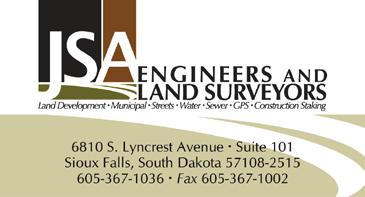

















5
1st Fridays on Main, Mitchell
Sept 5-6
Ribs, Rods & Rock n' Roll, Vermillion
Sidewalk Arts Festival, Sioux Falls
Sept 6-7
Quilt & Fiber Arts Show, Hill City
Homesteader Day Celebration, Valley Springs
Sept 8-14
Sanford International Golf Tournament, Sioux Falls
Tailgate Party at the Zoo, Sioux Falls
Sept 12-13
Black Hills Polkapalooza at Palmer Gulch, Hill City
Mount Rushmore Half Marathon, Hermosa
1880 Train Wine Express, Hill City
Sept 13-14
Kuchen Festival & Twin Rivers Old Iron Harvest Festival, Delmont
Sept 13-14
Harvest & Kuchen Festival, Delmont
Sept 18-20
Black Hills Plein Air Paint-Out, Hill City
Sept 18-20
First Dakota Classic Archery Tournament, Yankton
Sept 19-20
Deadwood Jam, Deadwood
Sept 19-21
Black Hills Photo Shootout, Spearfish
Sept 19-21
SiouxperCon, Sioux Falls
Sept 19-21
Mickelson Trail Trek, Lead
Sept 19-21
North Country Fiber Fair, Watertown
KXLG Community Chili Cook-off, Watertown
Downtown Riverfest, Sioux Falls
Great Downtown Pumpkin Festival, Rapid City
Sept 20-21
Pioneer Power Show, Menno
Marathon & Half Marathon, Sioux Falls
Sept 25-27
Custer State Park Buffalo Roundup & Arts Festival, Custer
Sept 26-28
South Dakota Festival of Books, Spearfish
Sept 26-28
Cinch Playoffs, Sioux Falls
1880 Train Oktoberfest Express, Hill City
Sept 27-28
Wheelin' to Wall, Wall
Fall Volksmarch, Crazy Horse Memorial

The SDML Nominating Committee is presenting the following slate of officers for consideration for board positions for the 2025-2026 cycle.
• President: Leland Treichel, President of the Board, Roscoe
• 1st Vice President: Michellle DeNeui, Finance Officer, Spearfish
• 2nd Vice President: Dawn Murphy, Finance Officer, Tea
• Board Trustee: Rick Boschee, Mayor, Bowdle
The nominating committee met in early August via Zoom. Members included Al Cerny, Mayor, Gregory; Michael Grosek, Mayor, Webster; and Debbie Houseman, City Administrator, Wagner. Committee members were appointed by SDML Board President Carolynn Anderson.
Election of officers will take place during the SDML Annual Business Meeting on Oct. 3 in Pierre, SD.
SDML President Carolynn Anderson has named the following individuals to the 2025 Auditing Committee.
• Claire Baartman, Finance Officer, Dell Rapids
• Tracy Davis, Deputy Finance Officer, Rapid City
• Michelle DeNeui, Finance Officer, Spearfish
• Jordan McQuillen, Finance Director, Aberdeen
• Cody Papke, Chief Auditor, Sioux Falls
The auditing committee is tasked with examining the accounts or annual audit of the League each year. They will meet Oct. 1 and will present their report during the SDML Annual Business Meeting on Oct. 3 in Pierre, SD. ■

CLARENCE E. ANTHONY | NLC EXECUTIVE DIRECTOR
Reprinted from National League of Cities, www.nlc.org.
In 2026, the country will celebrate the 250th anniversary of its founding. This milestone is also closely connected to a celebration of the role that local governments have played in shaping our country and its governance.
As a country born out of revolution and hungry for independence, local governance was a crucial element of America’s founding. That’s why the National League of Cities is proud to join the Government Finance Officers Association (GFOA), the National Association of Counties (NACo), International City/County Management Association (ICMA), National Association of Regional Councils and several other groups in marking this historic occasion with a yearlong commemoration and recognition of local government and the people and services that make our local communities great places to live, work and play.
LocalGov 250 is a national effort among our organizations to showcase how cities, counties, regional councils and tribal governments have shaped — and continue to shape — American democracy from the ground up. We’ll highlight the rich stories of local government through storytelling, recognition and innovation.
As the country marches towards its semiquincentennial, here are a few ways that cities, towns and villages can get involved:
Nominate a Local Hero - Local Gov 250 will be selecting 250 local government heroes from all municipal professions to recognize during 2026. Nominations will open in October 2025 at https://www.localgov250.org/heroes. Heroes will be recognized at the Local Gov 250 Convening in Philadelphia in 2026.
Light to Unite - NLC has endorsed the Light to Unite initiative being led by the National Flag Foundation. In a call for national unity, the Light to Unite initiative encourages all cities, towns and key American buildings to light up (preferably in red, white and blue) on July 2, 2026. If you would like to join the Light to Unite initiative and commit to lighting a building in 2026, visit https://nationalflagfoundation.org/light-to-unite.
Moments - LocalGov250 will highlight key moments in American local government history that made a difference in the course of our nation. Share your own local community historical moments at https://www.localgov250.org/momen or tag us on social media at #localgov250.
As we march towards America’s semiquincentennial, join LocalGov250 for a historic celebration. ■
Safety & Loss Control Recognition Awards, Safety Benefits, Inc.
Due: Sept. 10
Recognizes SDML Work Comp and SD Public Assurance Alliance members who strive to ensure a safe workplace and manage entity liability. Applications accepted for three levels of awards. Presented by Safety Benefits, Inc. at the SDML Conference each fall. Learn more/apply: www.safety-benefits.com
SDML Hall of Fame
Due: Sept. 15
Honors elected and appointed officials and employees who have served municipalities in South Dakota for 20 or more years. Inductees will be recognized at the fall SDML annual conference and listed in the November issue of the South Dakota Municipalities magazine. Learn more/apply: sdmunicipalleague.org/ About-HallofFame
Community Forestry Grant, SD Dept. of Agriculture and Natural Resources
Due: Ongoing, grant round closes approximately Sept. 30 each year
Funds community forestry projects that solve a specific community forestry problem or demonstrate the importance of trees in our communities. Maximum limit of $5,000. Match required; may be met through volunteer labor, donated and/or purchased supplies, or actual cash expenditures.
Learn more/apply: https://danr.sd.gov
Deadwood Fund Grant, SD State Historical Society
Due: Oct. 1 annually
Awarded in amounts ranging from $1,000 to $25,000 to encourage large-scale restoration or rehabilitation of historic properties.
Learn more/apply: https://history.sd.gov/preservation/ fundingopportunities.aspx



Innovative Finance and Asset Concession Grant, US Dept. of Transportation
Due: Oct. 1
Funds help public entities scan their existing assets to unlock their value and explore innovative financing, alternative delivery, and public-private partnership opportunities. Grants up to $2 million are available, with the first million requiring no local match. Learn more/apply: https://www.transportation.gov/ buildamerica/innovativefinancegrants
Agri-Business Grant, SD Dept. of Transportation
Due: Oct. 15
Open to any local unit of government for the development of new or expanded agri-business industries. Provides for 80% of the construction costs. Grant size is limited to $600,000.
Learn more/apply: https://dot.sd.gov
Industrial Park Grant, SD Dept. of Transportation
Due: Oct. 15
Open to any local unit of government for the development of new or expanded access for new industry located within industrial parks. Provides for 80% of the construction costs. Grant size is limited to $500,000.
Learn more/apply: https://dot.sd.gov
Celebrate America! Grant, National Endowment for the Humanities
Due: Accepted and reviewed on a rolling basis
Awards 250 challenge grants of up to $25,000 each for projects that focus on the founding of the American nation, key historical figures, and milestones that reflect the exceptional achievements of the United States. The agency aims to award grants in every U.S. state and jurisdiction. Successful applicants required to match every dollar of grant funding with a dollar of nonfederal funds.
Learn more/apply: www.neh.gov/program/ celebrate-america
Daughters of the American Revolution Grants, Mary Chilton DAR Foundation
Due: Ongoing, awarded periodically throughout the year
Funds projects related to patriotism, historic preservation, or education. Regular Grants - projects from $1,000 to $15,000, awarded three times a year; and Mini Grants - amounts up to $1,000, awarded six times a year.


Learn more/apply: https://mcdarfoundation.org/ apply-for-grants
Small Community Planning Grant Program, SD Dept. of Agriculture and Natural Resources
Due: Ongoing, awarded at any time on a first-come, first-served basis
Provides 80% of the funds to hire an engineering consultant to develop a project specific engineering report. Open to systems serving a population of 2,500 or fewer. A community may receive up to $8,000 for a water engineering study and up to $10,000 for a wastewater related study. Learn more/apply: https://danr.sd.gov
SDML Annual Conference
Sept. 30-Oct. 3, Pierre
Registration: SDML Members $125, Non-members $225, Single day and guest options available Gathers municipal employees and elected officials from across the state to network, learn new tips and trends, share best practices, and discover new products from exhibitors.
Learn more/register: sdmunicipalleague.org/conf2025
South Dakota Park and Recreation Association (SDPRA) Annual Conference
Oct. 6-9, Spearfish
Gathers parks and recreation professionals from throughout the region to explore the endless potential the profession provides communities 365 days a year. Learn more/register: www.sdpra.com
Fuel the Growth Economic Development Course
Oct. 6-9, Rapid City
Registration: $850/person
A Basic Economic Development Course that covers 10 economic development topics, including business development, organizational development, and community development.. Participants will learn from experts and colleagues through presentations, panel discussions, case studies, and networking opportunities. Accredited by the International Economic Development Council. Hosted by Black Hills State University and Rushmore Regional Alliance. Learn more/register: www.BHSU.edu/FueltheGrowth
City Summit, National League of Cities (NLC)
Nov. 20-22, Salt Lake City, UT
The largest educational and networking event for city officials in the United States, it brings together thousands of city leaders, corporate partners, and city staff for four days of educational seminars, policymaking, and networking activities. Held annually by the National League of Cities.
Learn more/register: https://citysummit.nlc.org





















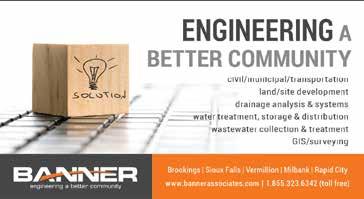
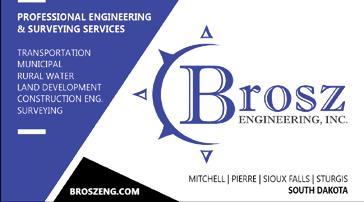















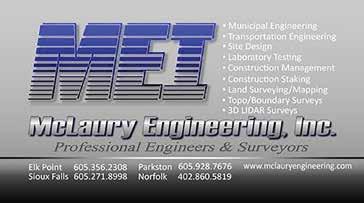
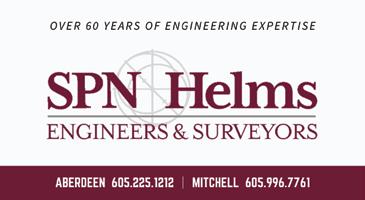




























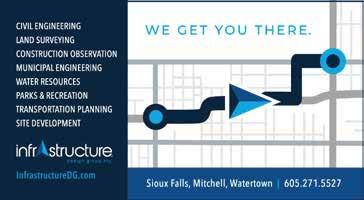




Congress recently completed a months-long process to pass historic tax cuts, cut more than a trillion dollars of spending, and secure the border. But that’s not all—the bill is packed with policies to improve the lives of Americans from coast to coast, even here in South Dakota.
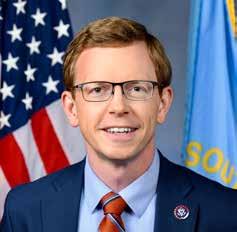
The National Association of Manufacturers expected South Dakota would lose 17,000 jobs, $1.5 billion of lost wages, and $3.1 billion lost economic output if Congress didn’t extend current tax rates. The One Big Beautiful Bill prevented that loss by delivering the largest tax cut in history. The bill ends taxes on tips and overtime pay so those who work hard to make ends meet can keep more of their paycheck. It also provides a $6,000 tax credit for seniors to make their Social Security benefits go further. These changes are all retroactive to the beginning of 2025 so you can feel the impact when you file your taxes next year.
Even though South Dakota is 1,000 miles from the southern border, we experienced the impacts of open border policies. Hundreds of thousands of immigrants illegally entered our country, and many of them committed horrible criminal acts and trafficked drugs like fentanyl, killing tens thousands of people every year. While President Trump has effectively closed the southern border, Congress must ensure that no future president allows another border crisis. The One Big Beautiful Bill finishes thousands of miles of walls and barriers
along the southern border, hires 16,000 more immigration agents, and implements policies like Remain in Mexico to make America safe again.
South Dakota’s farmers and ranchers need certainty to confidently run their agriculture operations. The One Big Beautiful Bill improves trade and conservation programs in the Farm Bill and supports farmers who are facing high input costs due to record inflation. It also boosts defenses against foreign animal diseases that threaten livestock and poultry like New World Screwworm, bird flu, and African Swine Fever. Improving assistance for our producers will help South Dakota agriculture thrive.
The One Big Beautiful Bill’s benefits don’t stop there. It’s far-reaching and touches almost every industry. It provides a historic $50 billion investment in rural health care, which we will certainly benefit from in South Dakota. The Air Traffic Control system also gets a major upgrade, improving the safety of air travel. The One Big Beautiful Bill restores integrity to welfare programs like Medicaid and food stamps, ensuring the programs can serve the neediest Americans for generations. Students at trade schools will now be eligible for Pell Grants, strengthening the workforce. And great news for Ellsworth—the bill provides $4.5 billion to expand and expedite production of the B-21 bomber.
There’s a lot of good in the One Big Beautiful Bill, and I’ve barely scratched the surface. Through its passage, Congress saved thousands of jobs, began to decrease federal government spending, and provided support for Americans in nearly every walk of life. I expect you’ll see its positive benefits soon. ■
Chief of Police - City of Eagan, MN. Responsible for the overall planning, operation, function, and administration of the Eagan Police Department and Emergency Management Services. The Chief oversees a budget of $20 million and a staffing of 79 full-time sworn officers and 16 full-time civilians with over 25 specialty teams. Leadership consists of the Chief, Deputy Chief, Administrative Lieutenant, Professional Standards Lieutenant, Operations Lieutenant (2), and Executive Assistant. In 2024, the Department responded to over 55,000 calls for service. Salary: $171,366 - $222,192 annually DOQ. View the full position profile, job description, and benefits at gmphr.com. First Review: Sept. 7, 2025. EOE.
Executive Assistant to the City Manager – City of Watertown, SD. Responsible for complex and confidential administrative duties. The Executive Assistant assists in the daily operations of the City Manager’s office, assists Department Heads with operational needs, and maintains high professional standards in the creation of reports and documents. Salary: Step 1= $54,974.40 annually or $4,581.20 monthly. Learn more at https://www.watertownsd.us/Jobs.aspx. Open until filled.
Finance Officer – City of Fort Pierre, SD. Directs activities of staff in various departments within the City, supervising personnel and overseeing the fiscal accounting, budgetary and business functions that are essential to the City, under the direction of the Mayor and according to statute, ordinances, codes, and policies adopted by the Council. Calls for a great deal of contact with the public therefore maintaining good public relations is essential. Bachelor’s Degree in Accounting or Business Management preferred, will consider an equivalent combination of relevant education and work experience. $2,000 Hiring Bonus. Salary range begins at $80,000/yr depending on qualifications and experience, plus excellent benefits. Learn more and apply at www.fortpierre.com (Employment Opportunities). Open until filled.
Communications Officer – City of Pierre, SD. Works as part of a team operating the Central South Dakota Communications Center, the 911-Emergency Dispatch Center for central South Dakota. Receives calls for assistance from the public, documents and dispatches appropriate public safety personnel for those calls. Receives, processes and sends radio communications for various Law Enforcement Agencies, Emergency Medical Services, and local Fire Departments. 40 hours per week - Shift work. Comprehensive benefit package. UP TO $3000 HIRING BONUS! Learn more and apply at www.cityofpierre.org. Open until filled. EOE.

Code Consultant/Plans Examiner – City of Rapid City, SD. Responsible to administer the compliance of codes, rules, and regulations governing the building construction industry, including the International Building Code, International Residential Code, International Existing Building Code, and ANSI codes and standards, and to supervise and coordinate Building Inspection staff. Learn more at www.rcgov.org. Open until filled.
Deputy Finance Officer – City of Pierre, SD. Responsible for the accounts receivable processing, monthly bank reconciliations, inventory processing, journal entry processing, accurate general ledger analysis, monthly sales tax submission to State, review and approve weekly A/P invoices, and monthly Departmental financial reports. Instrumental in managing the fixed asset inventory, annual inventory verification process, and year-end comprehensive annual financial report. In the absence of the Director of Finance, the Deputy is also responsible for keeping the Mayor and City Administrator promptly informed of all pertinent matters, assist with customer complaints or concerns, and coordinating the Tuesday night commission Meeting. Wage offer based upon actual education and experience. Comprehensive benefit package. UP TO $3000 HIRING BONUS! Learn more and apply at www.cityofpierre.org. EOE.
Finance Officer – City of Hecla, SD. Responsible for all the city’s finance operations, including payroll, budgets, accounts payable and receivable, financial reporting, preparing, and filing all necessary state and federal reports and other day to day operations of the city. Prepares, directs, and reviews resolutions, ordinances, municipal elections as well as preparing for monthly council meetings. Coordinate and collaborate with boards, outside organizations, state, and federal agencies and abide by all South Dakota Codified Laws. Experience in customer service and computer knowledge required. Full-time position. Wage DOE with a benefit package. Apply at the City Office 206 Main Street, Hecla, SD. Questions may be directed to 605-994-2333. Open until filled. EOE.
Finance Director – City of Waukee, IA (population 31,823). Waukee is located in Dallas County, Iowa, and is part of the Des Moines – West Des Moines Metropolitan Statistical Area. Waukee is one of the fastest growing cities in the state. Located in central Iowa, adjacent to Des Moines, and several other suburban cities, citizens enjoy convenient access to a large variety of cultural events, dining, retail, recreation, sporting, employment, educational and entertainment opportunities. Bachelor’s Degree in accounting, financial management or closely related field required. Master’s preferred. Salary negotiable DOQ. Current salary range is $131,204 - $179,562. Generous benefit package. For additional information about the City of Waukee please visit: https://www.waukee.org or contact Jeff Cayler, jeff.cayler@gmail.com or (712) 830-3794. Apply by Sept. 8.
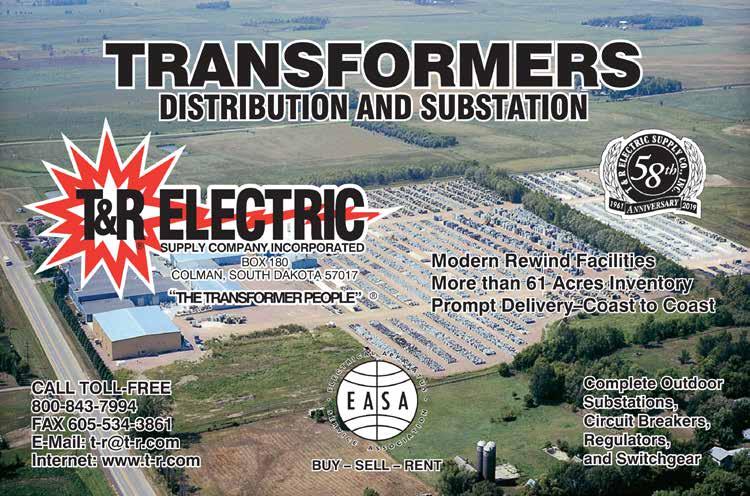
Communications Officer – City of Spearfish, SD. Responsible for performing emergency and non-emergency communications functions. Full-time, $26.24 per hour. Learn more and apply at https://www.spearfish.gov/161/Career-Opportunities. Open until filled.
Patrol Officer - City of Mitchell, SD. Responsible for the enforcement of federal, state, and local laws and the protection of life and property. Some of the job duties include: patrol the city to detect and deter criminal activity and traffic violations and to provide assistance as needed; monitors commercial and residential areas for signs of criminal activity; responds to calls for service, including domestic disputes, assaults, burglaries, traffic accidents, lost or missing persons searches, public service requests; completes required reports and forms, including accident and incident reports. Starting wage: $29.636 per hour. $3,000 relocation stipend. Competitive benefits. Learn more and apply at www.cityofmitchellsd.gov. Open until filled.
Police Officer - City of North Sioux City, SD. Part-time police officer position. South Dakota certification is preferred, but not mandatory. This employment may move into a full-time position, should that opportunity become available. The North Sioux City Police Department will also be compiling a Hiring List of applicants to be considered for any part-time or full-time positions that may become available in the future. Please mail, email or fax applications and resumes to: North Sioux City Police Department, PO Box 650/ 118 So. Victor Avenue, North Sioux City, SD 57049. Email: rich.headid@northsiouxcity-sd.gov, peggy. gorsett@northsiouxcity-sd.gov. Open until filled.
Police Chief – City of Pierre, SD. Responsible for directing the police services for the City of Pierre, including coordinating the internal and external activities of the department. In addition to impeccable integrity and a proven record of leadership, the candidate must possess the following: A bachelors’ degree from an accredited university majoring in police science, criminal justice, business administration or a closely related field and a minimum of ten years of law enforcement experience with a minimum of seven years in a command position with advanced management training such as FBINA, SPI or an equivalent combination of experience and education. Comprehensive benefit package. Wage offer will be based upon actual education and experience. UP TO A $3000 HIRING BONUS! Learn more and apply at www.cityofpierre.org. Open until filled.
Police Officer – City of Belle Fourche, SD. Performs general police work in the protection of life and property, including conducting investigations of reported crimes and narcotic violations, responding to emergencies, and conducting public education programs. Enforce local, state and federal laws, prevent and suppress crime and accidents, and promote public safety. Patrol areas of Belle Fourche, answer calls in emergency and non-emergency situations, and initiate action on matters coming to the attention of the officer, including preparing citations. Compensation: $26.58 - $31.70 DOQ. Hours: 40 hours+ per week. Learn more and apply at www.bellefourche. org/employmentopportunities. Open until filled.
Police Officer – City of Hot Springs, SD. Protects life by: Responding to calls for service and emergency assistance; rendering aid to the physically injured, handicapped and others

requiring assistance, including but not limited to victims of accidents, criminal incidents, natural disasters or other incidents; investigating safety hazards and taking action to correct potential problem areas, including road hazards, defects and environmental hazards. Wage: DOEQ $23.12-$28.90/hr. TOS. Salary: $28.90/hours. For a complete job description, application, and benefit listing visit www.hs-sd.org and search city employment opportunities. Open until filled. EOE. Police Officer – City of Spearfish, SD. This position will enforce local, state, and federal laws, prevent and suppress crime and accidents, and promote public safety through community policing principles. This position will be responsible for the investigation of criminal cases as assigned. This is a full-time position. $31.97/hour. ~SignOn Bonus $6,000~ Learn more and apply at https://www.spearfish. gov/161/Career-Opportunities. Open until filled.
Police Offi cer (part-time) – City of Worthing, SD. Position is responsible for performing varied assignments in motorized patrol, traffic control and enforcement, municipal ordinance enforcement, and other related law enforcement activities. Applicant must be of good moral character, self-motivated, and have good people skills. Current Law Enforcement Certification is preferred. Starting wage will be DOE. Work schedule is flexible. Applications are available on the City of Worthing website at www.cityofworthing.com or at City Hall, 208 S. Main Street, Worthing, SD 57077. For questions contact Worthing City Hall at: 605-372-4113. Open until filled. EOE.
Herbicide Technician – City of Pierre, SD. Performs technical duties in the application of herbicides, pesticides, and other chemical applications in addition to performing grounds maintenance duties.

Knowledge in the use and application of pesticide and aquatics chemicals would be beneficial. Ability to identify the best course of treatment for needed results. Make recommendations to cure any problem along with adjusting applications to each site’s specific needs. Maintain proper logs of chemical applications. Ability to follow manufacturer instructions for application of herbicides. Comprehensive benefit package. Wage offer will be based upon actual education and experience. UP TO $3000 HIRING BONUS! Open until filled. Learn more and apply at www.cityofpierre.org.
Planning Director – City of Sturgis, SD. Responsible for performing advanced and complex professional work in current and long-range planning, zoning, land use, and development for the City of Sturgis. Involves providing exceptional service and fostering collaboration in all internal and external interactions. Will oversee and administer planning and development functions, including building services, in alignment with the City’s goals and policies. Key responsibilities include the implementation and enforcement of the City’s zoning ordinance, subdivision regulations, and comprehensive plan. Salary: $88,000 yearly. Find more details and an application at https://www. sturgis-sd.gov/jobs. Open until filled.
Electrician - Water Purification – City of Sioux Falls, SD. Responsible for the installation, maintenance, and repair of electrical systems and equipment crucial to facility operations. Key responsibilities include troubleshooting and resolving electrical issues, performing



preventative maintenance on electrical systems, and ensuring compliance with safety regulations and industry standards. The successful applicant will have experience with three-phase motors and control systems in an industrial setting, as well as general electrical work experience in industrial environments. Hiring range DOQ: $28.08 - $33.11 hourly; $31.54 - $37.38 hourly with license. Learn more and apply online at www.siouxfalls.gov/careers. Open until filled.
Fleet Mechanic – City of Hot Springs, SD. Monitors and directs the day-to-day activities and operations of fleet maintenance; coordinates and provides maintenance and repair to city department vehicles and machinery. Oversees and performs skilled tasks in the servicing, repair and maintenance of a variety of city equipment and vehicles; oversees the inventory and procurement of all applicable parts, supplies, tools, fuels and equipment needed with supervisor assistance; prepares maintenance reports and machinery/ part documentation. Wage: DOEQ $16.71-20.89/hr. TOS. For a complete job description, application, and benefit listing visit www. hs-sd.org and search city employment opportunities. Open until filled.
Highway Maintenance Worker – Sully County Highway Department, Onida, SD. Applicant must have a high school diploma or GED and a valid driver's license. Job includes full benefits. Applicant is subject to a drug and alcohol test after conditional offer of employment. A CDL is required within 30 days of hire. Salary: $23/hour. Applications are available at www.sullycounty.net or call the Sully County Auditor (605) 258-2541. Open until filled. EOE.
Maintenance Employee – City of Marion, SD. Includes working with all aspects of maintenance within the city of Marion, including but not limited to streets, parks, water, sewer, swimming pool and city equipment. Must be able to work with heavy equipment, have or be willing to obtain a CDL, have or be willing to obtain water and wastewater certifications, and be willing to live in the city of Marion. Full-time benefits eligible position. Wage DOE. Visit marionsd. com/employment for an application. Applications can be returned to marionsd@gwtc.net or mailed to PO Box 94, Marion SD 57043. Open until filled.
Maintenance Operator, Class III – City of Hot Springs, SD. A skilled position performing streets, parks and cemetery maintenance. Responsible for performing street and park maintenance including, but not limited to, operating hand tools, power tools, regular duty trucks, loaders, bobcats, blades, street sweeper, plow trucks, semitruck, water truck, etc. It is expected of this position to also be able to perform carpentry and masonry related tasks in addition to metal fabrication. Starting wage: DOEQ $15.79-19.74/hr. For a complete job description, application, and benefit listing visit www.hs-sd.org and search city employment opportunities. Open until filled.
Public Works (Part-time) – City of Worthing, SD. Responsible for assisting in all public works areas, including, but not limited to: parks, streets, water, wastewater, building and grounds, and public health. Desired minimum qualifications include: a valid South Dakota driver's license, basic knowledge of municipal maintenancerelated activities, ability to operate equipment such as lawn mowers, skid loader and payloader. Candidates should be self-motivated and have the willingness to work as a team. Starting wage will be DOE. Work schedule is flexible. Applications available at www. cityofworthing.com or by calling city hall at 605-372-4113. Open until filled. EOE.

Public Works Assistant – City of Hartford, SD. Performs skilled work assisting in all phases of maintaining the city streets, water distribution system, and wastewater treatment system. Will assist with the maintenance of all public buildings and open spaces –including the city pool and parks. Compensation to be determined by the Hartford City Council dependent on qualifications and experience. Learn more at www.hartfordsd.us. Open until filled.
Public Works Employee – City of North Sioux City, SD. Plays a vital role in the maintenance and operation of the city’s streets, water, and sewer infrastructure. Responsibilities include but are not limited to: Maintain and repair streets, water systems, and sewer infrastructure; Operate a variety of equipment and machinery; Perform routine inspections and address public work’s needs; Be available for on-call duties, including rotating weekends and snow events. Learn more and apply at https://northsiouxcity-sd.gov/ departments/human-resources. Resumes and applications can be sent to CityofNSC@northsiouxcity-sd.gov. Open until filled. EOE.
Public Works Supervisor – City of Baltic, SD. Full-time position responsible for overseeing streets, parks, water, sewer, and storm drainage systems. Duties include maintenance, repairs, inspections, recordkeeping, budgeting, and supervising staff. Requires strong mechanical aptitude, knowledge of public works tools/equipment, and ability to perform physical labor in all seasons. SD CDL required; must obtain specific state water, wastewater, and applicator certifications within 6 months. Previous supervisory and municipal maintenance experience preferred. Competitive pay and benefits. Reports to the Mayor of Baltic. Apply to: finance@cityofbaltic.com or
City of Baltic, PO Box 327, Baltic, SD 57003 or visit www.cityofbaltic. gov for details. Open until filled.
Public Works Supervisor – City of Britton, SD. Will perform supervisory, administrative and professional work in planning, organizing, directing, and supervising the Public Works Department, including environmental, water, sewer, street, traffic control, cemetery, airport, swim pool, parks, rubble site, forestry and code enforcement. Applicant must be dependable, reliable, and friendly and be able to work with others. Must have a lifting capacity of 75 lbs. Full benefit package. Applications at https://cityofbritton.com or at city hall; City of Britton, PO Box 126, Britton SD 57430. 605448-5721. Open until filled. EOE.
Sanitation - Solid Waste Collector – City of Brookings, SD. Help keep Brookings clean and green! Operate collection trucks, pick up waste and recycling on designated routes, and assist with landfill and seasonal maintenance. Drive and operate automated collection trucks; collect refuse, recycling, and yard waste; maintain landfill grounds (mowing, litter control, repairs); assist other City departments as needed. Salary $20.710 - $28.030/hr. Learn more and apply at www.cityofbrookings-sd.gov/careers. Open until filled.
Wastewater Plant Specialist – City of Hartford, SD. Oversees the daily operations of the city’s Aeromod mechanical wastewater treatment plant. Requires self-motivation, technical knowledge, and a commitment to maintaining the plant’s operation efficiency and regulatory compliance. Responsible for the testing, reporting, maintenance, and upkeep of the plant and grounds while ensuring that all processes meet environmental standards and safety regulations. Full-time, year-round position with full benefits. The ideal candidate should have experience in wastewater treatment operations. Wages will be commensurate with experience and qualifications. The starting pay range is $25.00-$40.00 per hour. Learn more and apply online at www.hartfordsd.us. Open until filled. EOE.
Find full descriptions, links to applications, more listings, or place an ad online:
CLASSIFIEDS POLICY: $50 per submission. SDML members receive classified ads for free as part of their membership. Includes a listing on the SDML classifieds webpage and in the next issue of the SD Municipalities magazine if received by the 10th of the month preceding the publication date. Submissions may be subject to editing.

2020 Everest 7’ Finishing Mower - Town of Lebanon, SD. Surplus Item. Model # 5700C Serial #50197004. Category 1 Connections. Property being sold AS IS. Was working when put in storage. Mower was used for two summers. Town purchased a new tractor with Category 2 Connections. Mower comes with a new set of blades. Bids can be mailed to: Town of Lebanon, 203 Vail Street, Lebanon, SD 57455. Board has the right to refuse any bid. Bid must be received on or before the regular meeting on Sept. 8, 2025.








September 2025
On or before September 1 – The finance officer must report annually to the governing body an estimate of the expenses of the municipality and likewise the revenue necessary to be raised for the current year in budget form similar to that recommended by the municipal accounting manual as provided in SDCL 4-11-6. (SDCL 9-2223; See Hdbk., sec. 12.065)
Before September 2 – If the number of on-sale and off-sale liquor licenses is
not fixed by ordinance, the governing body may determine by resolution the number of on-sale and off-sale liquor licenses and the fees to be charged for each. (SDCL 35-4-11; See Hdbk., sec. 11.205)
First Monday of September – Labor Day – State holiday (SDCL 1-5-1)
At the first regular meeting in September, or within ten days thereafter – The annual appropriation ordinance for the ensuing year must be introduced. (SDCL 9-21-2; See Hdbk., sec. 12.066)
On or before October 1 – The governing board of any municipality may, on or before the first of October preceding the annual municipal election, approve an ordinance requiring a runoff election as found in SDCL 9-13-27.1 and SDCL 9-13-26.1 (SDCL 9-13-25; See Hdbk., sec. 7.600)
On or before October 1 – Immediately upon passage and publication of the annual appropriation ordinance, the auditor or clerk must certify the tax levies contained therein to the county auditor on or before October first in the following form:
For general purposes____ For interest and debt service fund___ (SDCL 9-21-20 and SDCL 10-12-7; See Hdbk., sec. 12.066)
Boundary changes – Municipalities must notify the Department of Revenue of any resolution or amendment enacted which changes the boundaries of the municipality. Notification shall be in written form, shall contain a copy of the resolution or amendment, and may be sent by electronic means or registered mail. Municipalities shall also provide any changes and additions to streets and addresses. (SDCL 10-52-13; See Hdbk., sec. 14.172) ■

October 2025
5 6 7 8 9 10 11 12 13 14 15 16 17 18
19 20 21 22 23 24 25
26 27 28 29 30 31
On or before October 1 – The tax levies for the ensuing year must be certified to the county auditor. (SDCL 10-12-7; See Hdbk. Sec. 12.066)
In October – The State Department of Revenue mails out liquor license application forms to all licensees to be completed and submitted to the local authorities for initial action at the first regular meeting of the governing body in November. (NOTE: This is an
administrative determination so no statutory citation is possible.)
Second Monday of October – Native Americans’ Day – State holiday (SDCL 1-5-1)
By October 15 – The secretary of revenue shall apportion the money in the local government highway and bridge fund. (SDCL 32-11-35; See Hdbk., sec. 12.255(6))
No later than November 1 – The special assessment roll for all assessments payable under the Plan One option must be delivered to the county auditor. (SDCL 9-43-105; See Hdbk., sec. 12.160)
No later than November 1 – Delinquent special assessment installments which are payable under the Plan Two option must be certified to the county auditor.
(SDCL 9-43-106; See Hdbk., sec. 12.160)
No later than second Tuesday in November – Governing boards wishing to consolidate boards of equalization must approve a resolution outlining consolidated board membership no later than the second Tuesday in November. (SDCL 10-11-66; See Hdbk., sec. 12.120)
Boundary changes – Municipalities must notify the Department of Revenue of any resolution or amendment enacted which changes the boundaries of the municipality. Notification shall be in written form, shall contain a copy of the resolution or amendment, and may be sent by electronic means or registered mail. Municipalities shall also provide any changes and additions to streets and addresses. (SDCL 10-52-13; See Hdbk., sec. 14.172) ■
